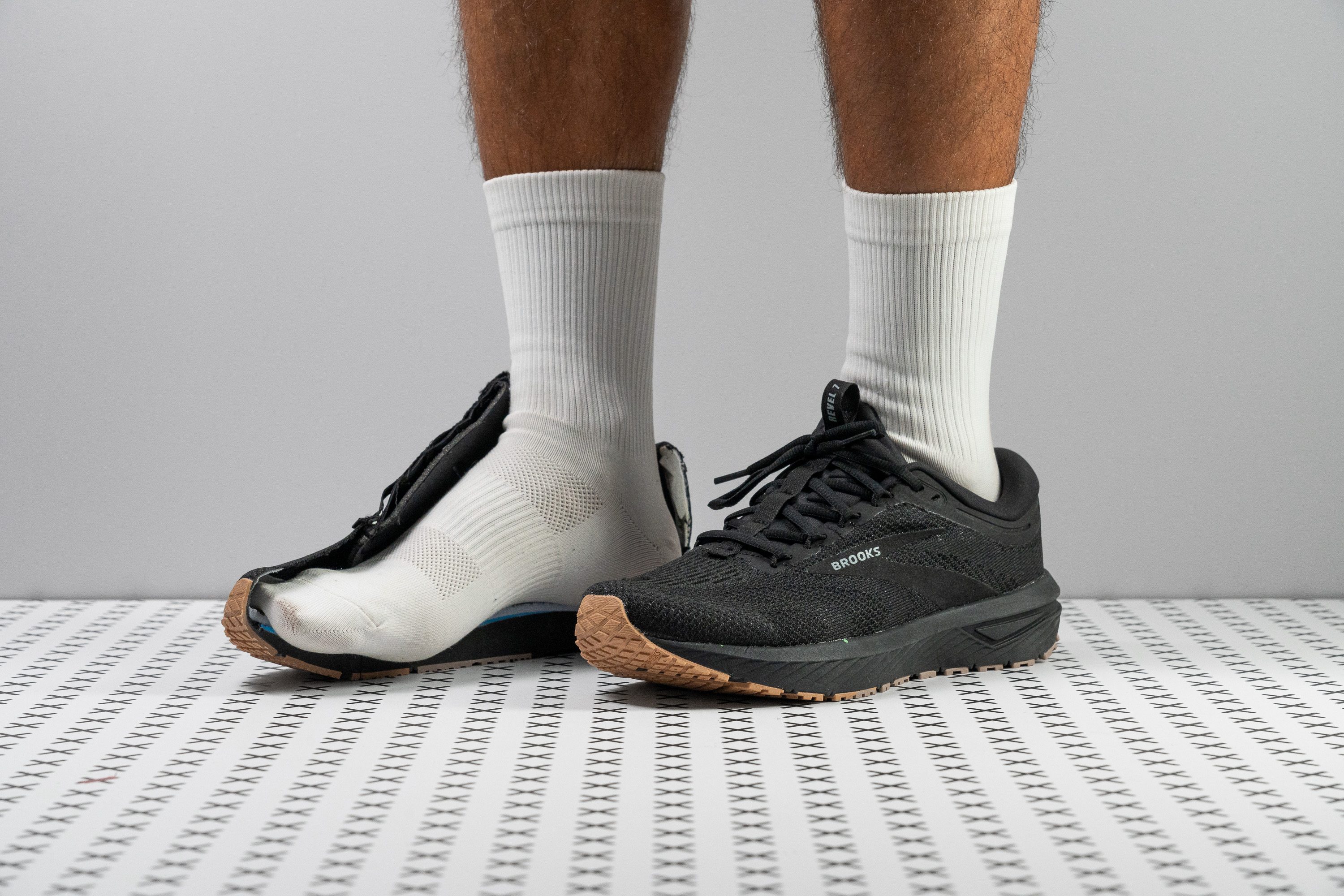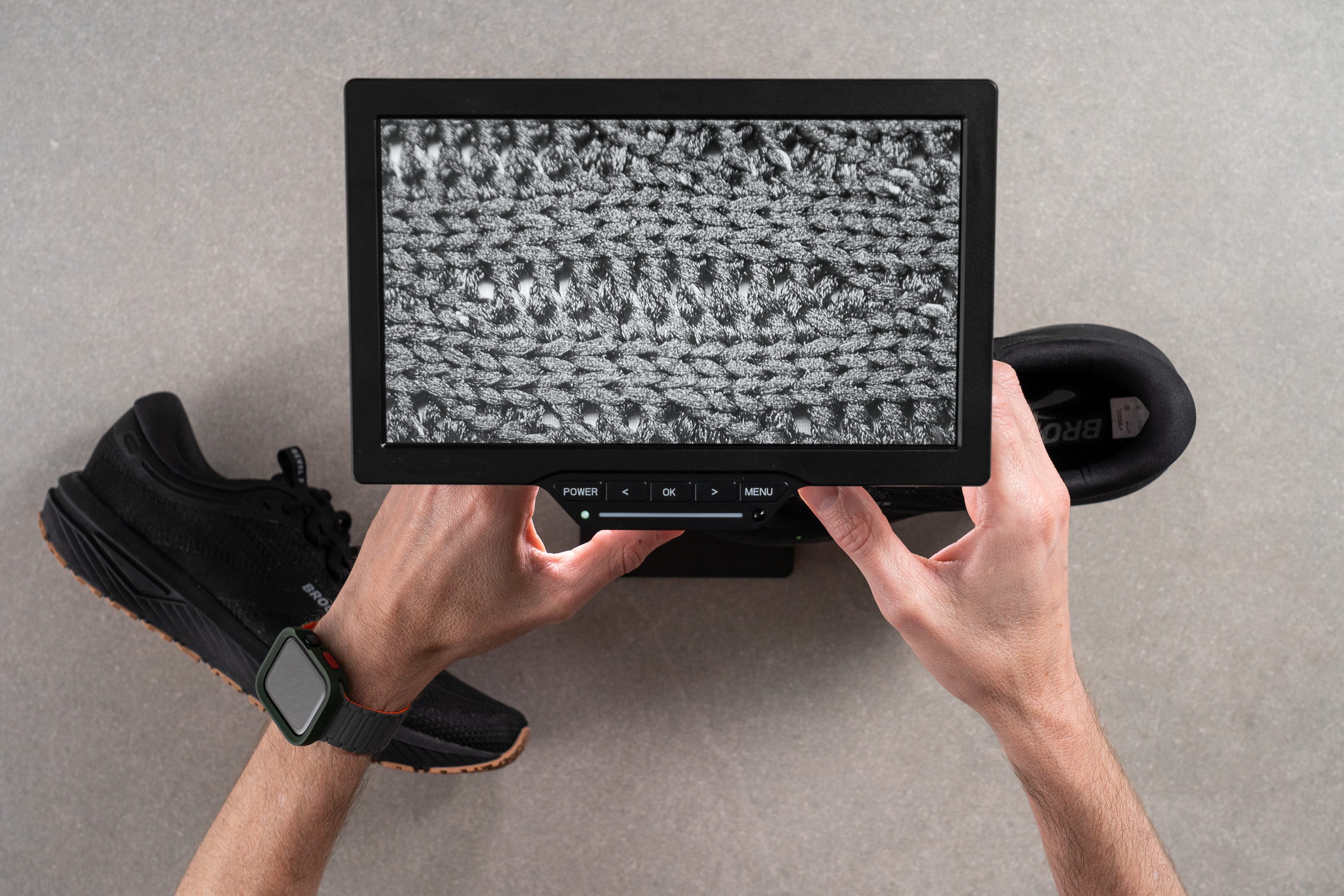Our verdict
- Top pick in best Brooks running shoes
Pros
- Exceptional value
- Highly breathable upper
- Impressively low weight
- Gusseted tongue
- Ideal for new runners
- Great for heel strikers
- Robust durability
Cons
- Ride lacks excitement
- Low energy return
- Forefoot cushioning
- Slippery when wet
Audience verdict
- Top 23% most popular running shoes
Comparison
The most similar running shoes compared
+ + Add a shoe | |||||
|---|---|---|---|---|---|
| Audience score | 83 Good! | 77 Decent! | 79 Good! | 75 Bad! | |
| Price | $100 | $75 | $70 | $100 | |
| Pace | Daily running | Daily running | Daily running | Daily runningTempo | |
| Shock absorption | Moderate | Moderate | Moderate | Moderate | |
| Energy return | Low | Low | Low | Low | |
| Traction | Moderate | Moderate | Moderate | High | |
| Arch support | Neutral | Neutral | Neutral | Neutral | |
| Weight lab Weight brand | 9.1 oz / 258g 9.1 oz / 258g | 9.3 oz / 265g 9.4 oz / 267g | 9.7 oz / 275g 9.7 oz / 275g | 8.6 oz / 244g 8.7 oz / 246g | |
| Lightweight | ✗ | ✗ | ✗ | ✓ | |
| Drop lab Drop brand | 9.8 mm 10.0 mm | 10.1 mm 10.0 mm | 7.8 mm 8.0 mm | 9.9 mm 8.0 mm | |
| Strike pattern | HeelMid/forefoot | Heel | Mid/forefoot | HeelMid/forefoot | |
| Size | True to size | Slightly small | True to size | Slightly small | |
| Midsole softness | Soft | Balanced | Balanced | Balanced | |
| Difference in midsole softness in cold | Normal | Small | Small | Small | |
| Toebox durability | Good | Decent | Bad | Decent | |
| Heel padding durability | Decent | Good | Good | Decent | |
| Outsole durability | Good | Good | Decent | Decent | |
| Breathability | Breathable | Moderate | Moderate | Moderate | |
| Width / fit | Medium | Medium | Medium | Medium | |
| Toebox width | Medium | Medium | Medium | Medium | |
| Stiffness | Moderate | Moderate | Moderate | Moderate | |
| Torsional rigidity | Stiff | Moderate | Moderate | Moderate | |
| Heel counter stiffness | Stiff | Moderate | Stiff | Stiff | |
| Heel lab Heel brand | 32.0 mm | 32.2 mm 32.0 mm | 31.2 mm 31.0 mm | 33.2 mm 32.0 mm | |
| Forefoot lab Forefoot brand | 22.2 mm | 22.1 mm 22.0 mm | 23.4 mm 23.0 mm | 23.3 mm 24.0 mm | |
| Widths available | Normal | NarrowNormalWideX-Wide | NormalWideX-Wide | NormalWide | |
| Orthotic friendly | ✓ | ✓ | ✓ | ✓ | |
| Season | SummerAll seasons | All seasons | All seasons | All seasons | |
| Removable insole | ✓ | ✓ | ✓ | ✓ | |
| Ranking | #513 Bottom 24% | #352 Bottom 8% | #340 Bottom 11% | #365 Bottom 4% | |
| Popularity | #152 Top 23% | #57 Top 15% | #70 Top 19% | #78 Top 21% |
Who should buy
We've thoroughly tested the Brooks Revel 7 and confidently recommend it for:
- Beginners entering the sport who need a single shoe that's as suitable for daily runs as it is for gym sessions or casual wear.
- Those in seek of a reliable and durable workhorse that delivers exceptional value.
- Budget-conscious runners looking for a lightweight daily trainer that handles easy to moderate runs with ease.
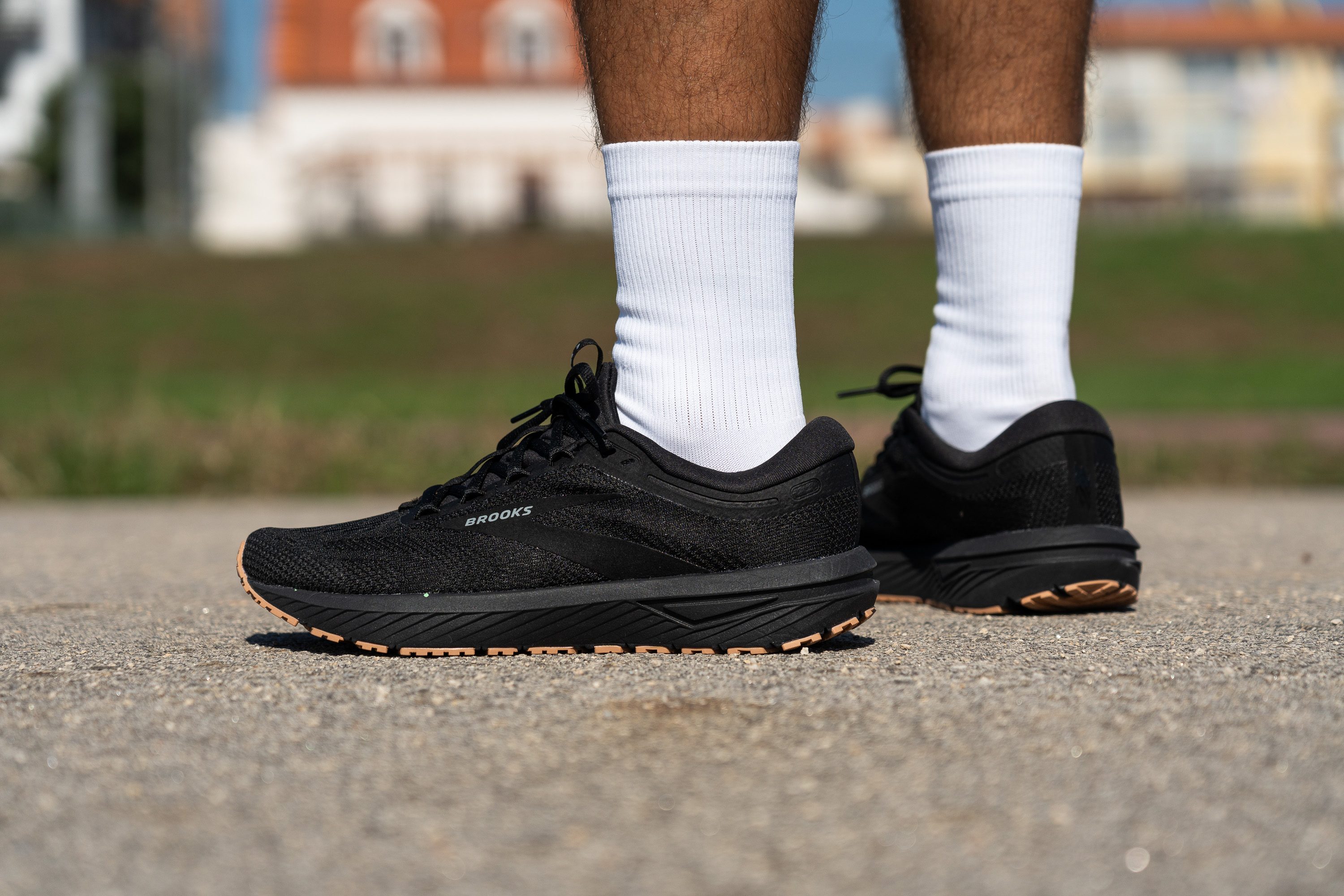
Who should NOT buy
While the Revel 7 from Brooks has many strengths, we've discovered in the lab that it doesn't provide the high energy return that bouncy and responsive ride enthusiasts typically seek.
In our experience, investing a bit more in options like the Brooks Ghost 16 or the ASICS Novablast 4 is totally worth it for those craving a more dynamic experience—both options are overall more enjoyable running shoes.
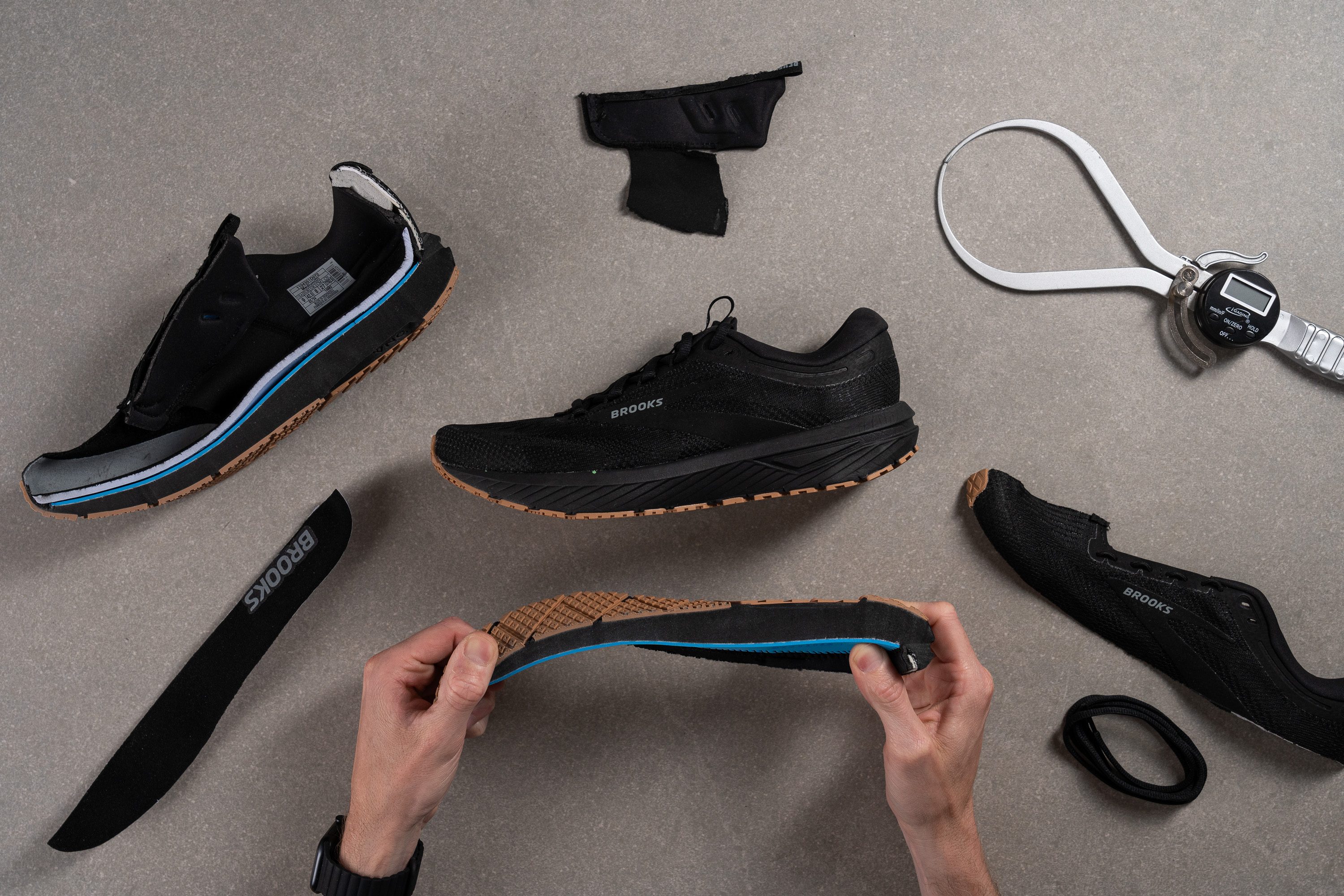
Additionally, we think that the cushioning in the Revel 7 may fall short for those eager to tackle longer distances. From our perspective, if you're a forefoot/midfoot striker and cushioning is key for you, we recommend the Saucony Axon 3 or the Nike Winflo 11.
Cushioning
Shock absorption
Being an affordable shoe with a thinner midsole, we didn’t expect standout shock absorption. The 91 SA we found in the forefoot seems best suited for lightweight runners, while heel strikers get better coverage with 119 SA.
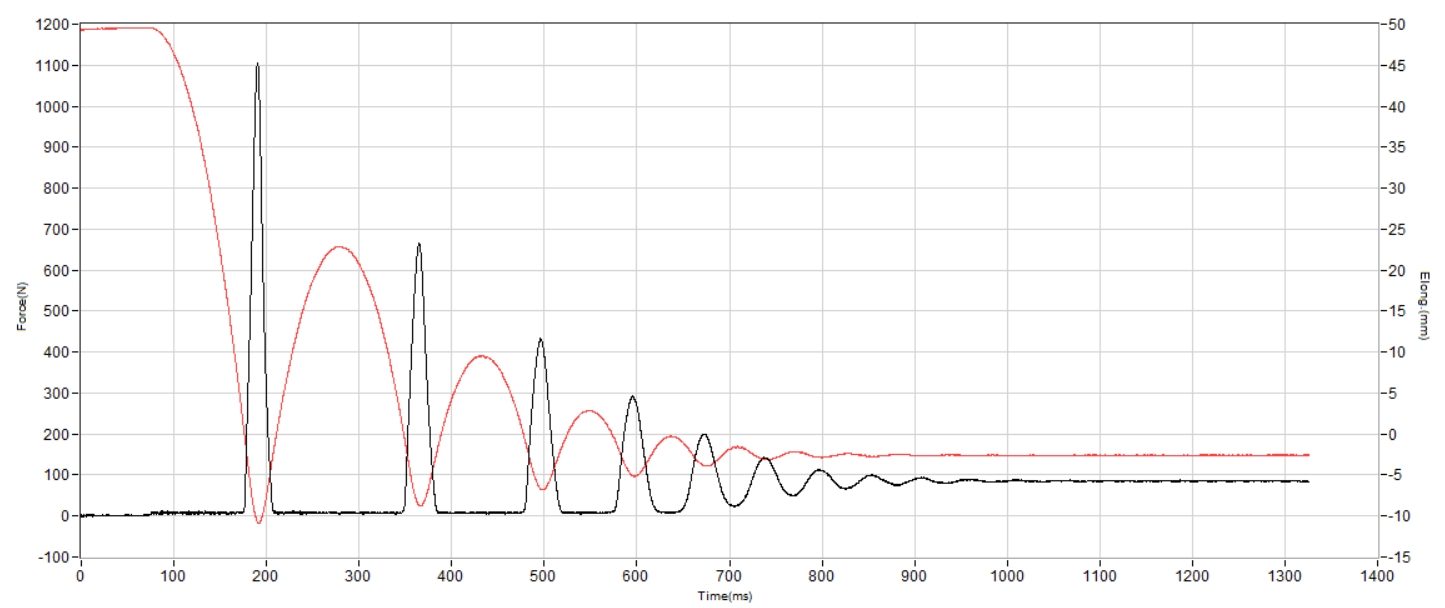
| Revel 7 | 119 SA |
| Average | 130 SA |
Energy return
Unfortunately, the Revel 7 doesn’t offer much bounce, with just 49.6% energy return in the heel. However, Brooks has the Launch 11, a slightly more expensive option with a noticeably livelier ride.
| Revel 7 | 49.6% |
| Average | 58.6% |
Heel stack
The heel is well cushioned at 32.0 mm, making it ideal for anyone planning to run distances under 10 miles.
For those looking to cover long runs, adding a maximalist shoe to your rotation might be a good idea.
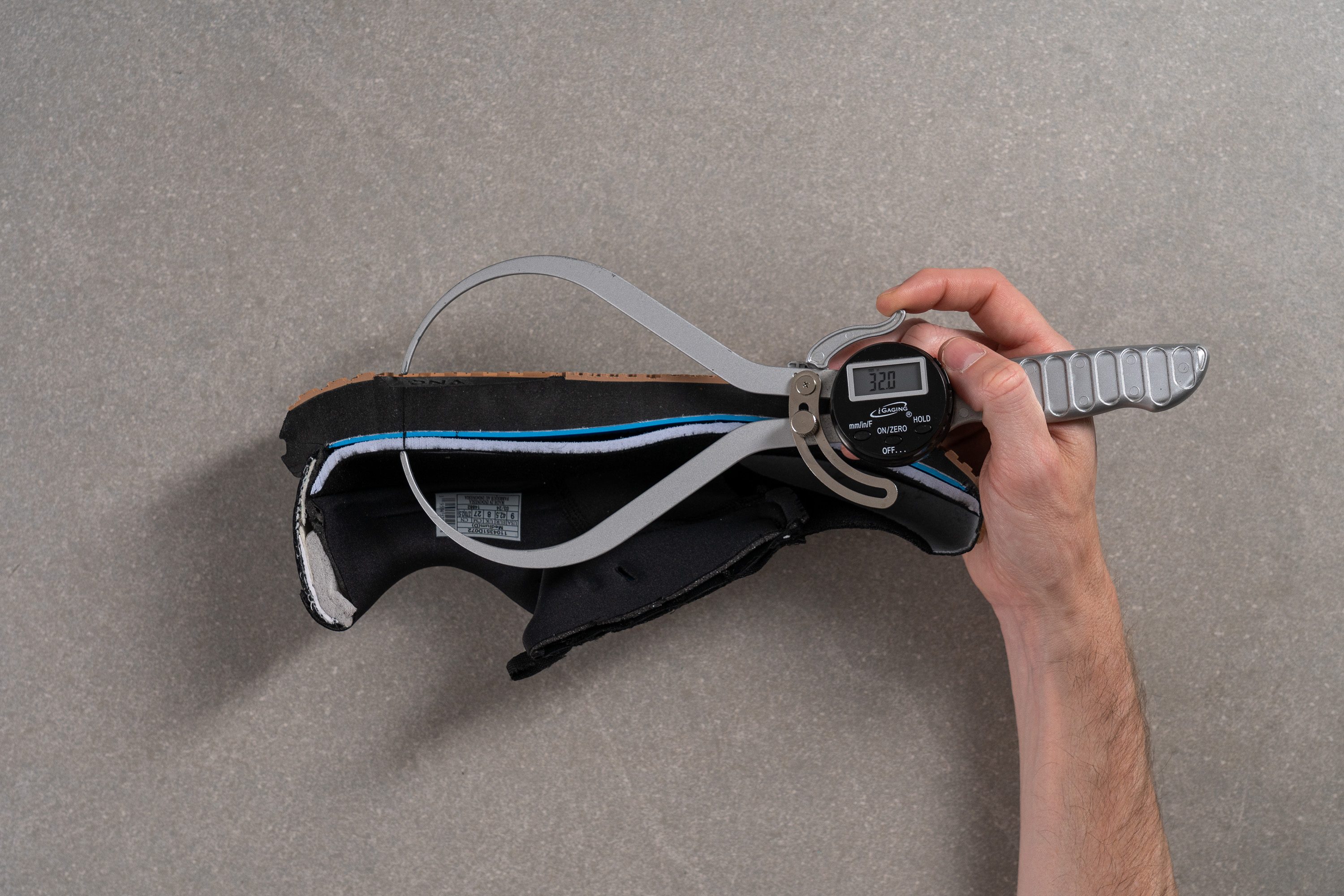
| Revel 7 | 32.0 mm |
| Average | 34.8 mm |
Forefoot stack
The forefoot cushioning measures a modest 22.2 mm, which we believe should suffice for shorter, easier runs, though it may not be ideal for distances over 10 miles.
In our view, this doesn't detract from the shoe's quality—having a good rotation is crucial for those who run nearly every day. And for casual runners hitting the roads two or three times a week, this level of cushioning will likely meet their needs without concern for longer distances.
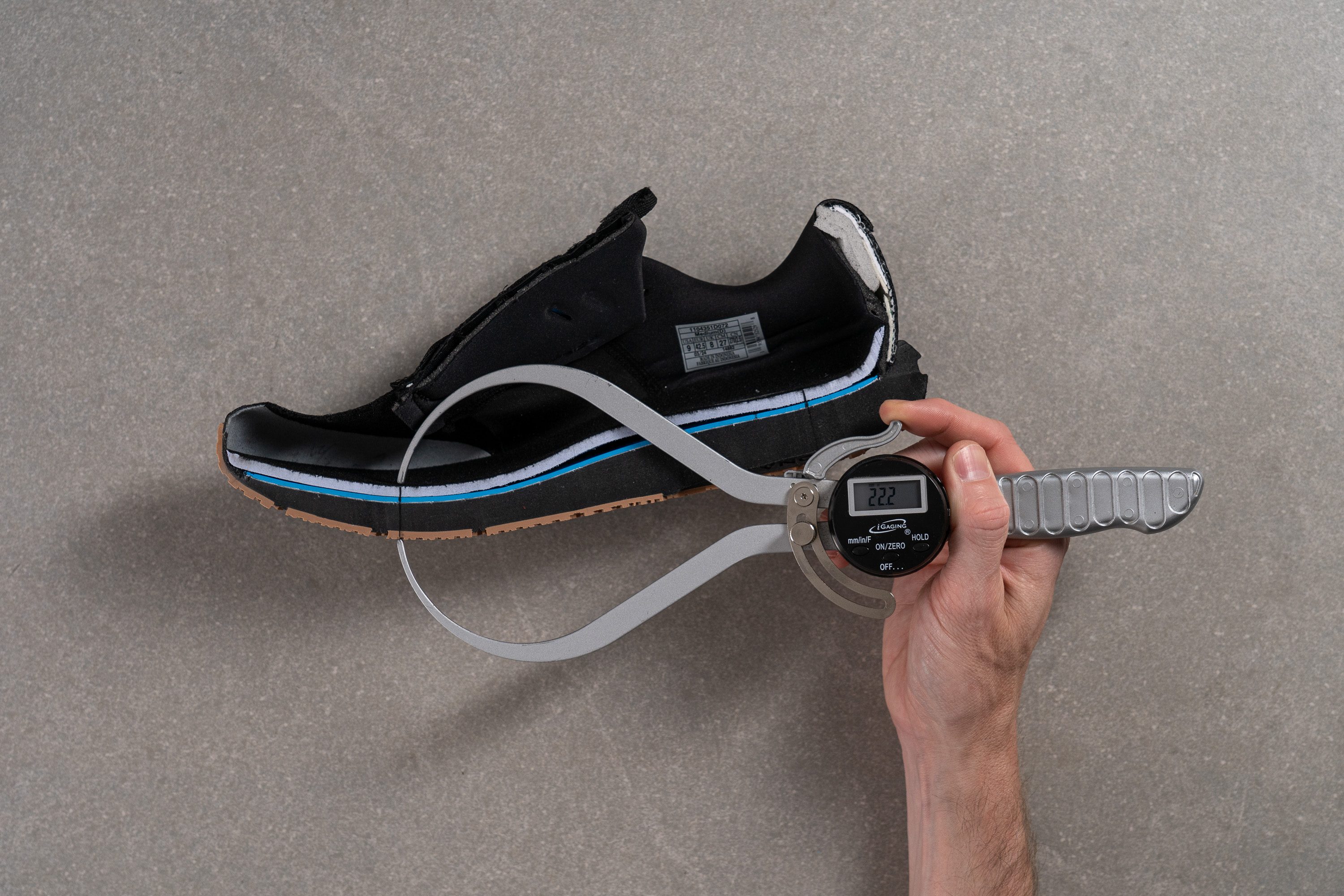
| Revel 7 | 22.2 mm |
| Average | 26.2 mm |
Drop
Calculating the difference between both measurements, we found a 9.8 mm heel-to-toe drop, a classic design for everyday road running shoes that accommodates all footstrikes.
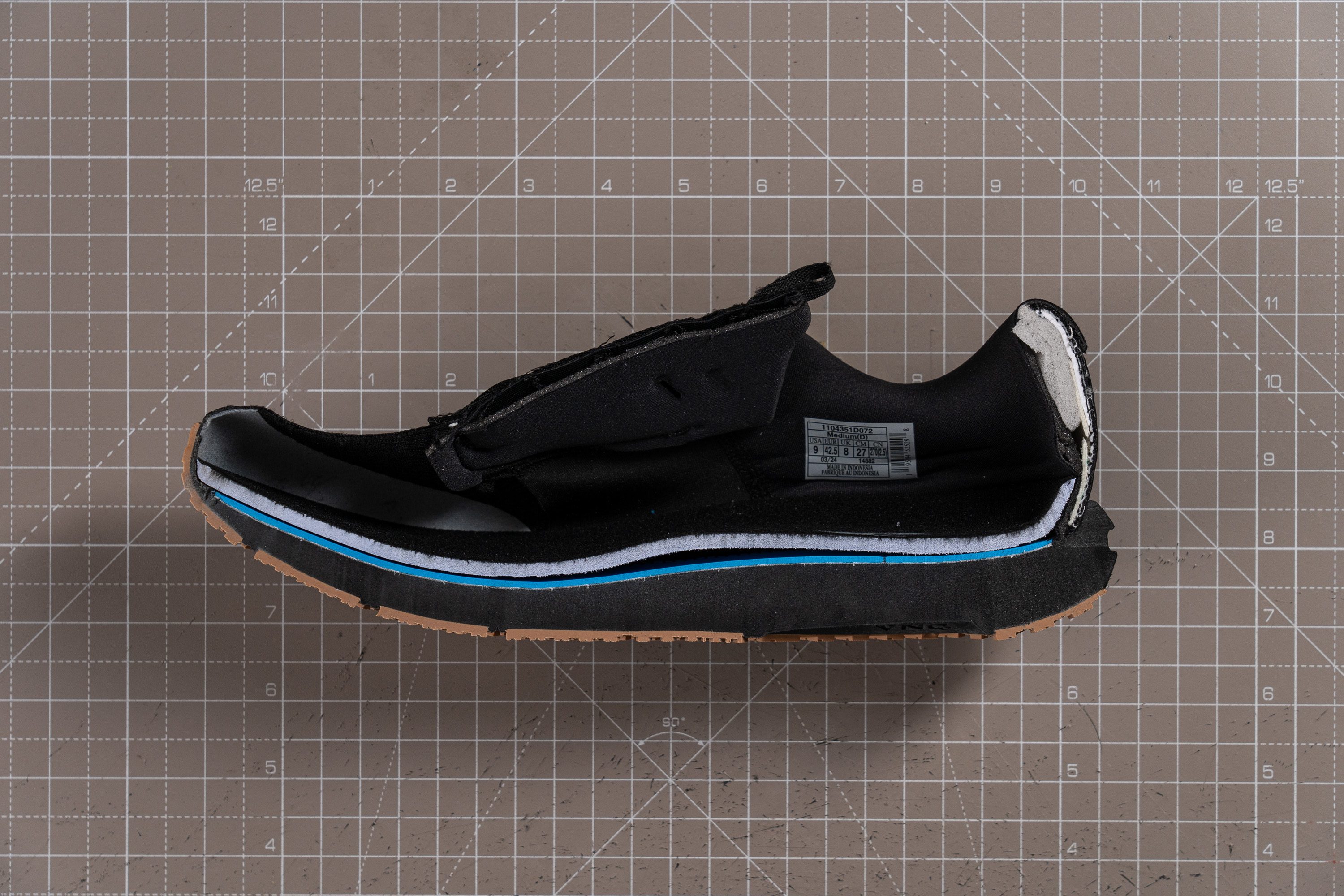
| Revel 7 | 9.8 mm |
| Average | 8.6 mm |
Midsole softness
The Revel 7 retains the same midsole as its predecessor, using the BioMoGo DNA cushioning. We think that Brooks chose to stick with the old adage, "if it isn't broken, don't fix it."
While they could have upgraded to a premium foam like DNA Loft v3, it's evident that such a feature remains exclusive to higher-priced series like the Ghost to maintain their distinct market positions.
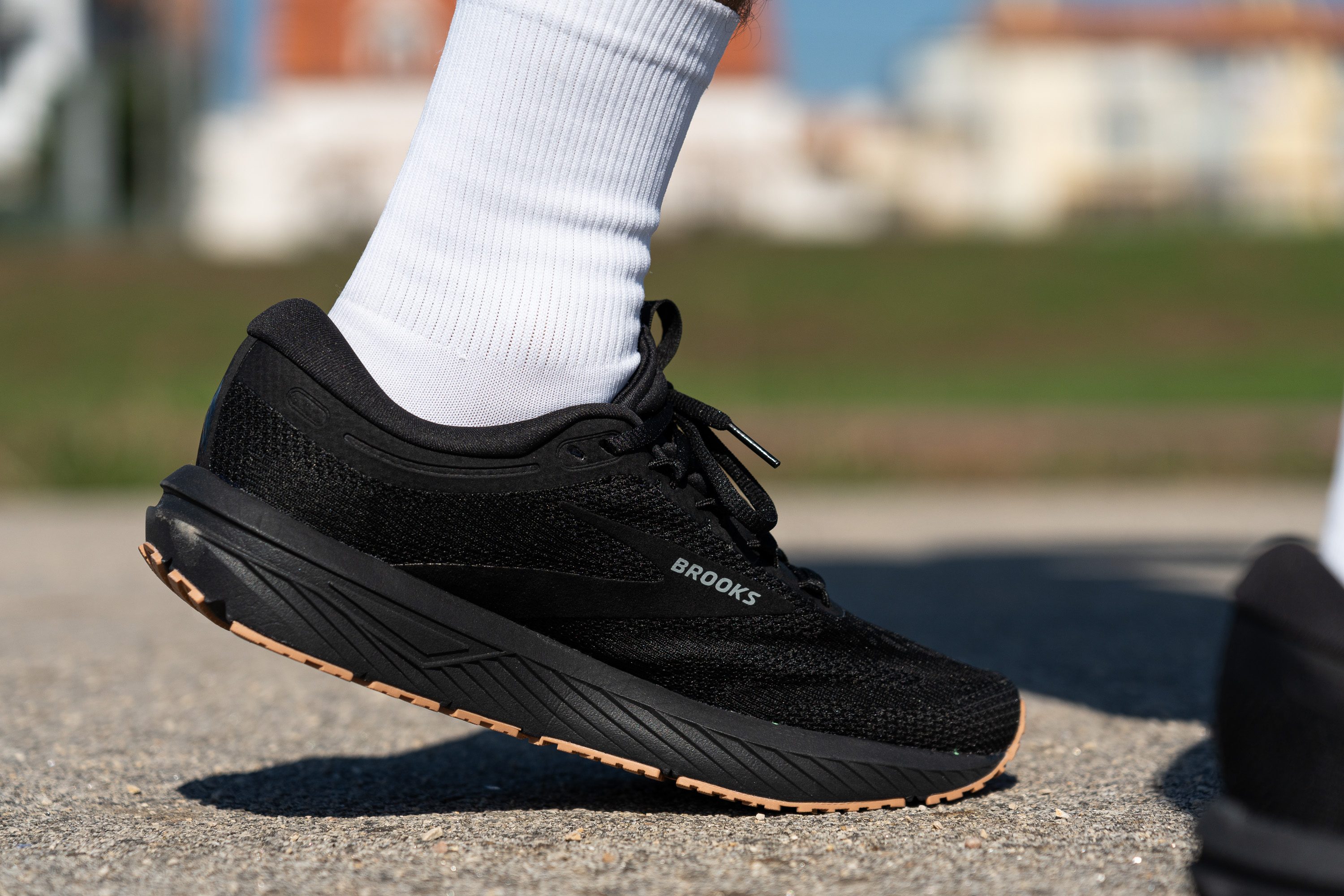
As for the 19.5-HA cushioning, it strikes a balance between plush and firm—subtle yet effective. It mirrors the overall character of the Revel!
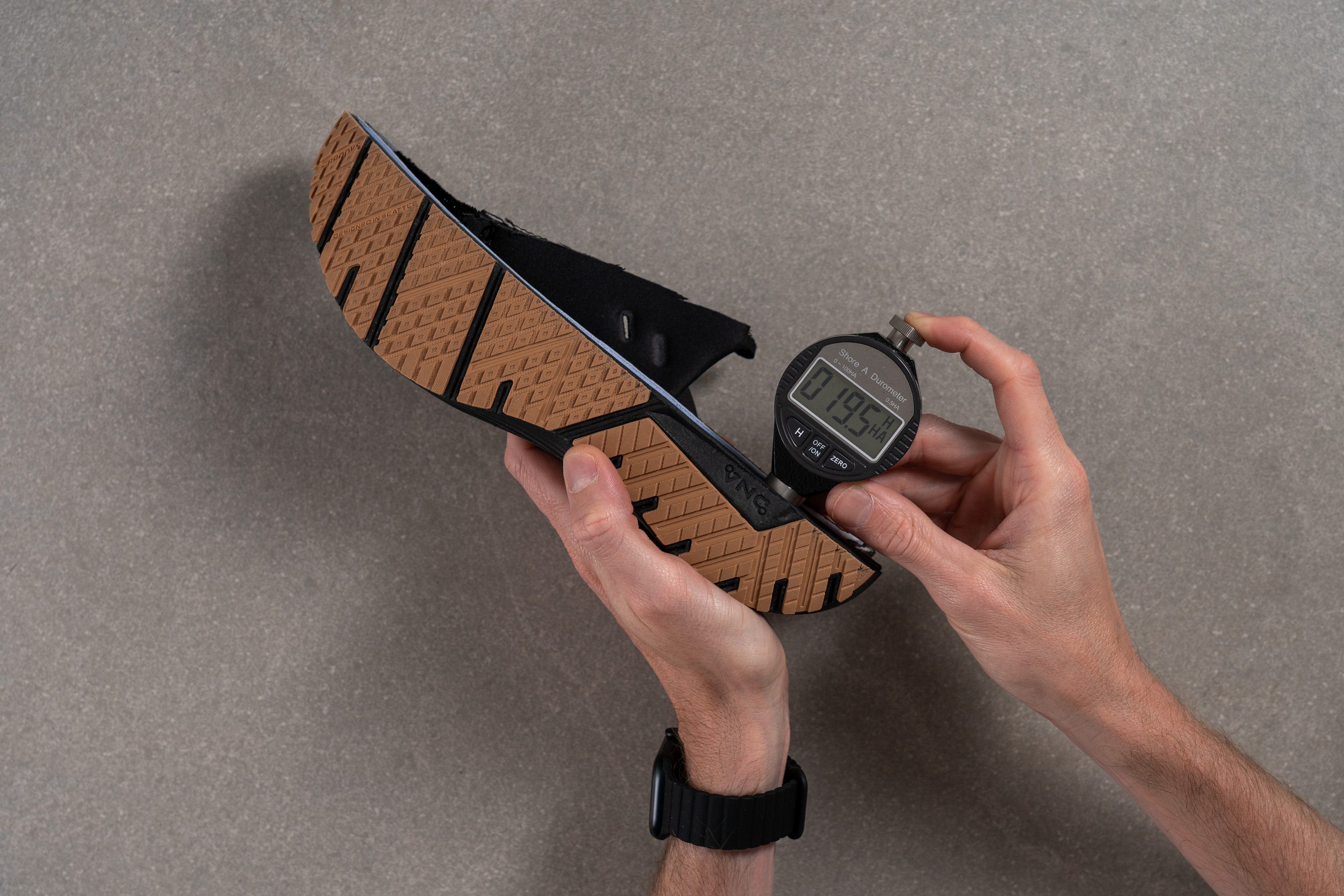
| Revel 7 | 19.5 HA |
| Average | 20.4 HA |
Size and fit
Size
Brooks Revel 7 fits true to size (205 votes).
Internal length
| Revel 7 | 269.5 mm |
| Average | 269.4 mm |
Width / Fit
Brooks has crafted the upper to be both comfortable and versatile, catering to a broad range of runners.
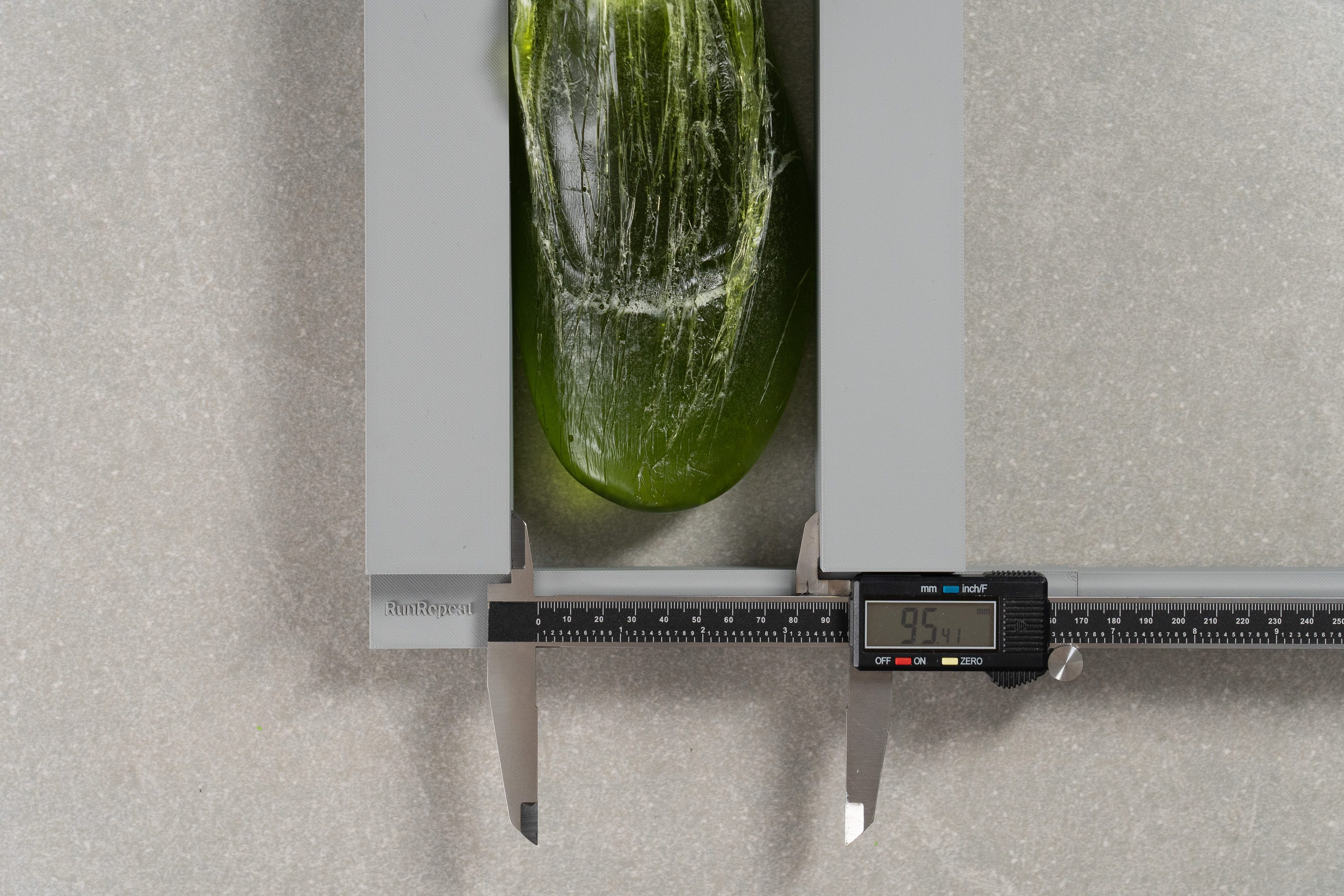
| Revel 7 | 95.4 mm |
| Average | 95.1 mm |
Toebox width
In our second fit evaluation, we measured the width around the big toe at 74.7 mm using our calipers and the gel mold. This result makes the Revel 7 a comfortable option for runners who appreciate a little extra room for toe splay.
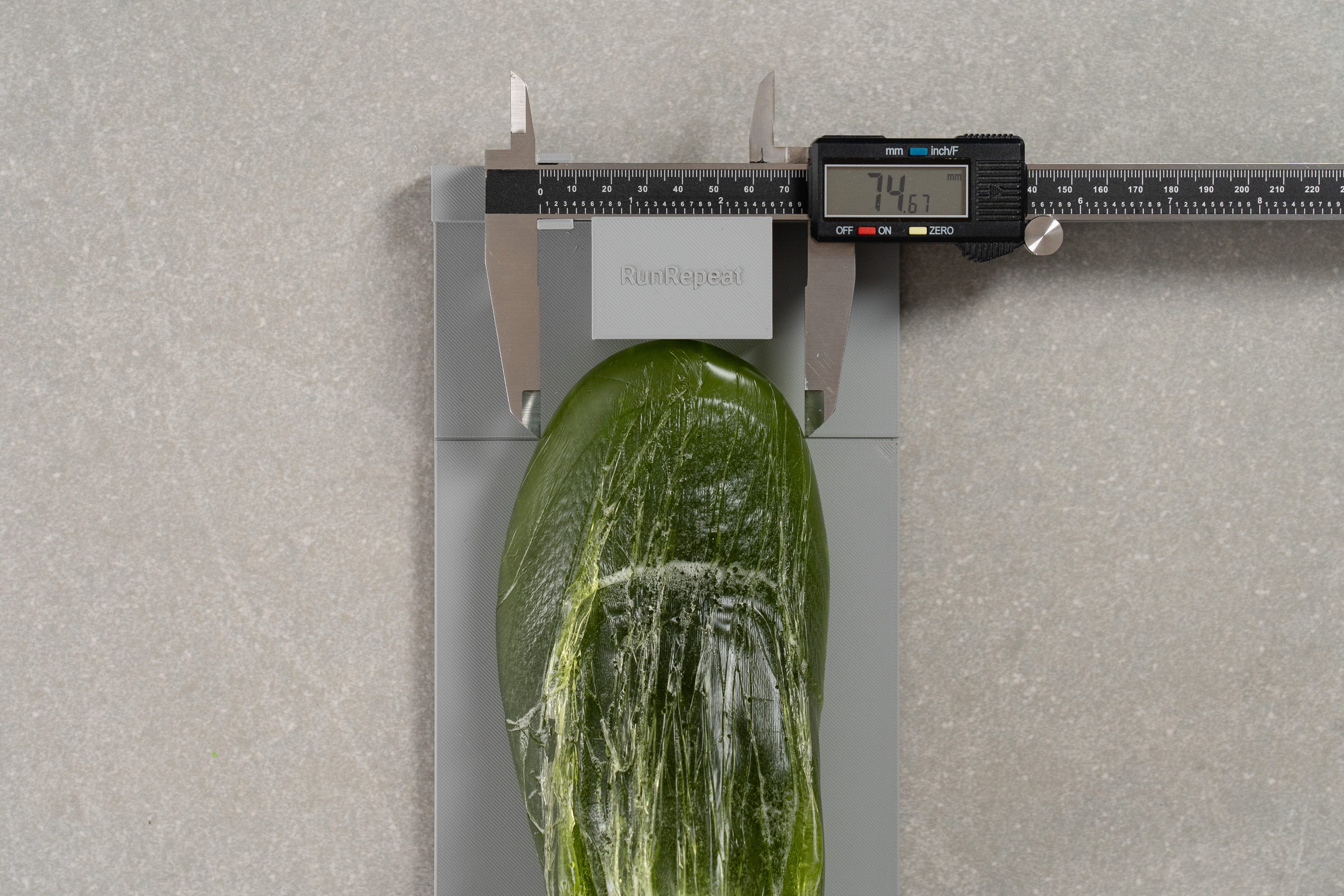
| Revel 7 | 74.7 mm |
| Average | 73.3 mm |
Toebox height
In terms of vertical volume, the Revel 7 strikes a balance—neither overly snug nor excessively tall, but comfortably moderate and, definitely, well-suited for most runners.
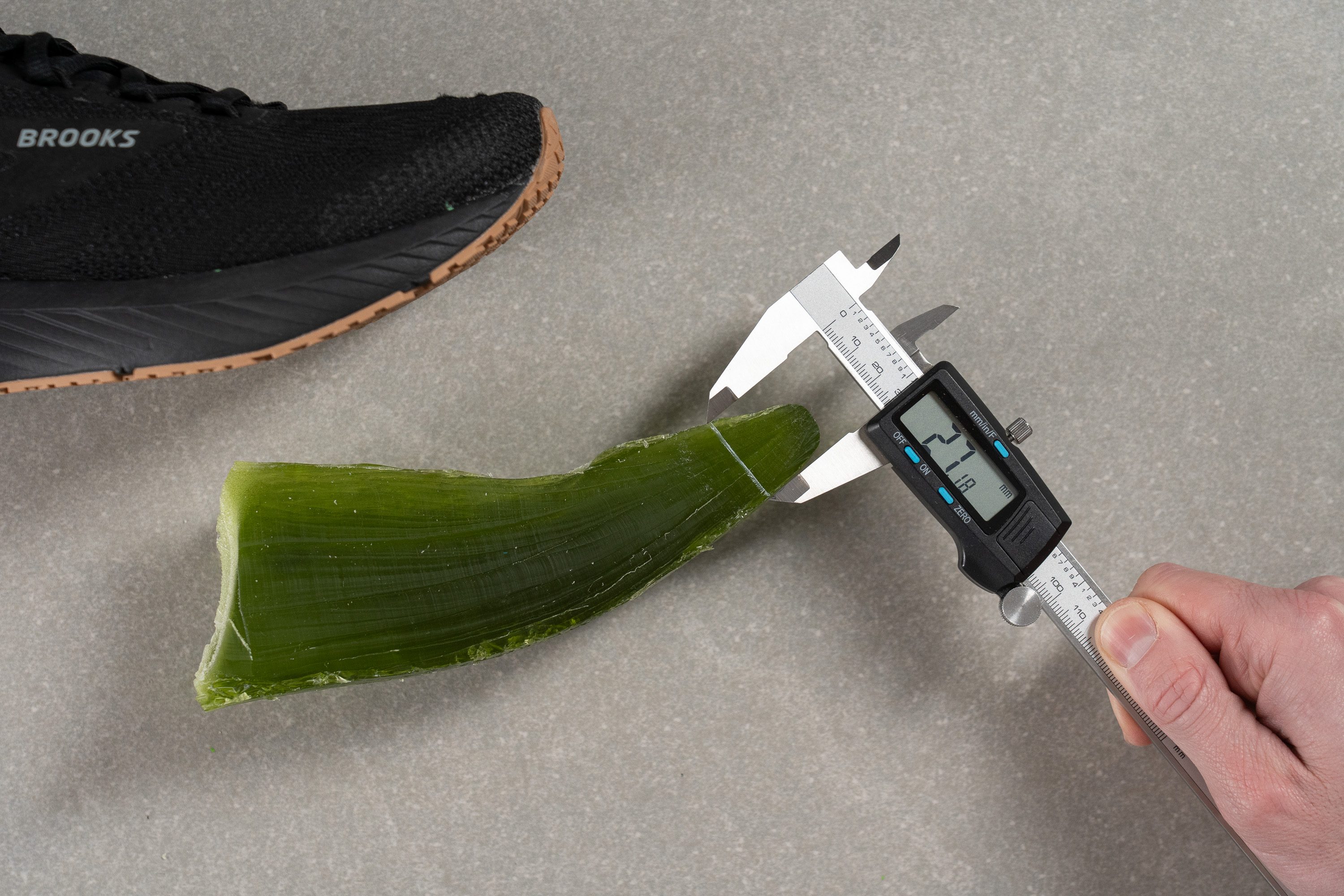
| Revel 7 | 27.2 mm |
| Average | 27.0 mm |
Traction / Grip
Traction test
Wearing the Brooks Revel 7 on smooth and wet sidewalks can feel a bit tippy because its outsole grip is not as strong as one might hope.
As our our SATRA TM144 grip test showed, the shoe's forefoot rubber has a below-average friction score of only 0.33. While it's fine for dry roads, it's not your best bet for picking up the pace or cornering when wet.
| Revel 7 | 0.33 |
| Average | 0.49 |
Outsole design
The coverage of the outsole is quite generous, with almost no exposed foam. This is excellent news for anyone hoping for maximum durability from this shoe. We also discovered four main V-shaped grooves in the outsole, designed to enhance torsional and longitudinal flexibility.
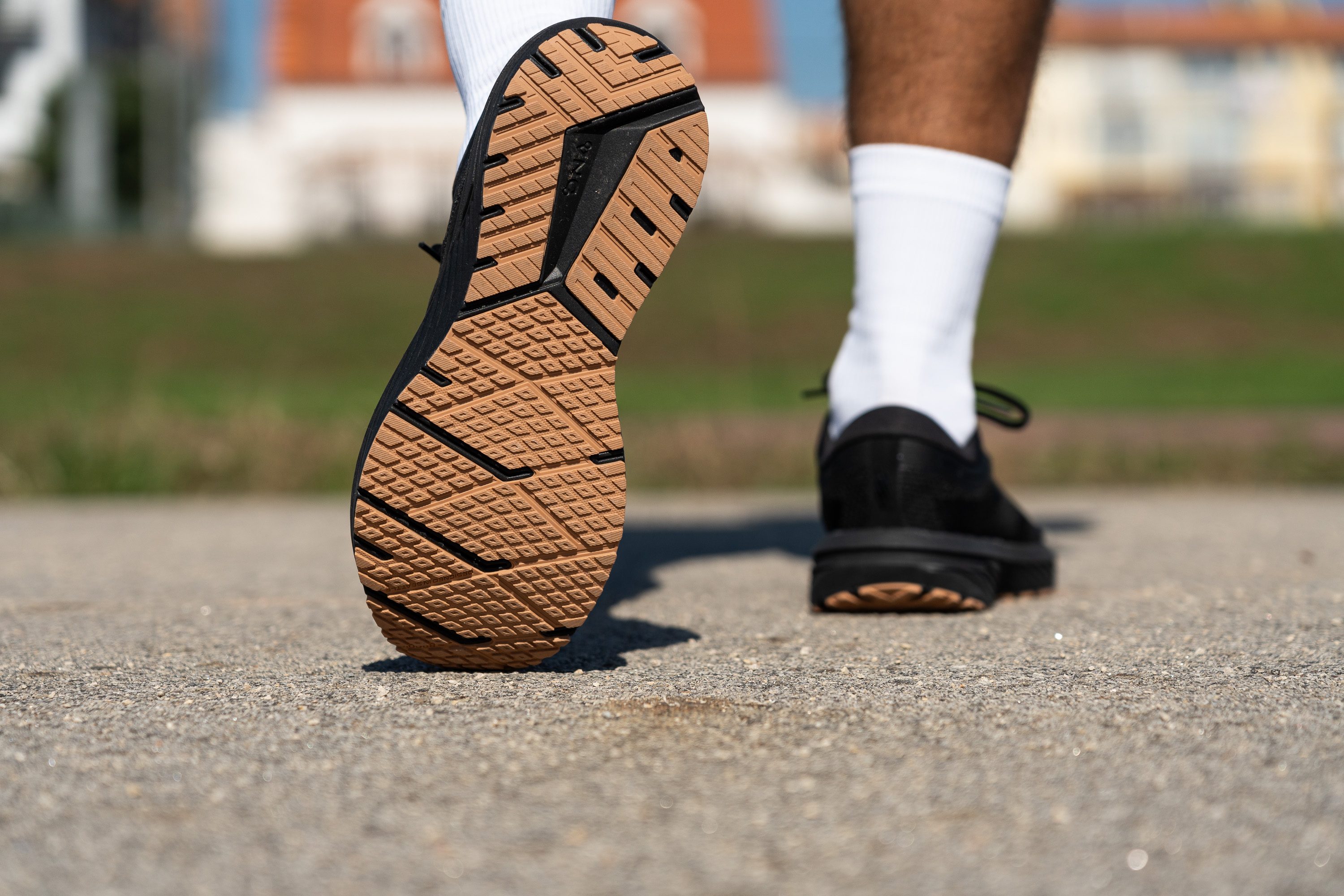
Flexibility / Stiffness
We previously noted that the Revel 7 felt a bit rigid from a torsional standpoint, which wasn’t ideal for comfort. The same applies longitudinally, as we found an average result at 15.8N—definitely above many of its competitors in the daily trainer game.
A low score in this test is crucial for everyday activities, as a flexible sole significantly enhances comfort whether you’re walking the dog or heading to the gym. And while it’s not a dealbreaker, those wanting top flexibility will be a bit disappointed.
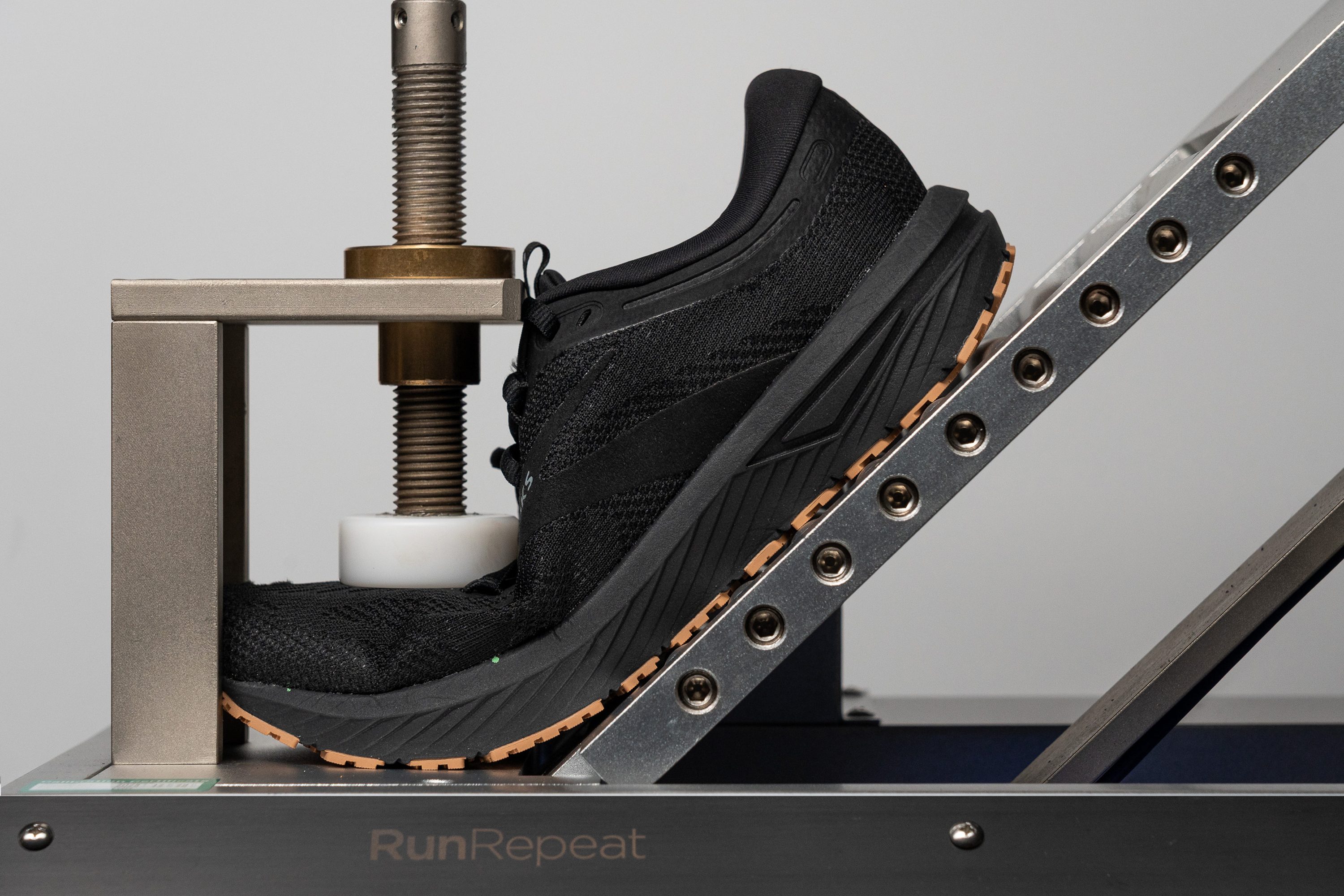
| Revel 7 | 15.8N |
| Average | 15.3N |
Weight
The Revel 6 from Brooks weighed in at 9.2 oz or 261g on our scales, but impressively, Brooks managed to reduce the weight to 9.1 oz or 258g. Although it's a slight reduction, it's nonetheless an improvement!
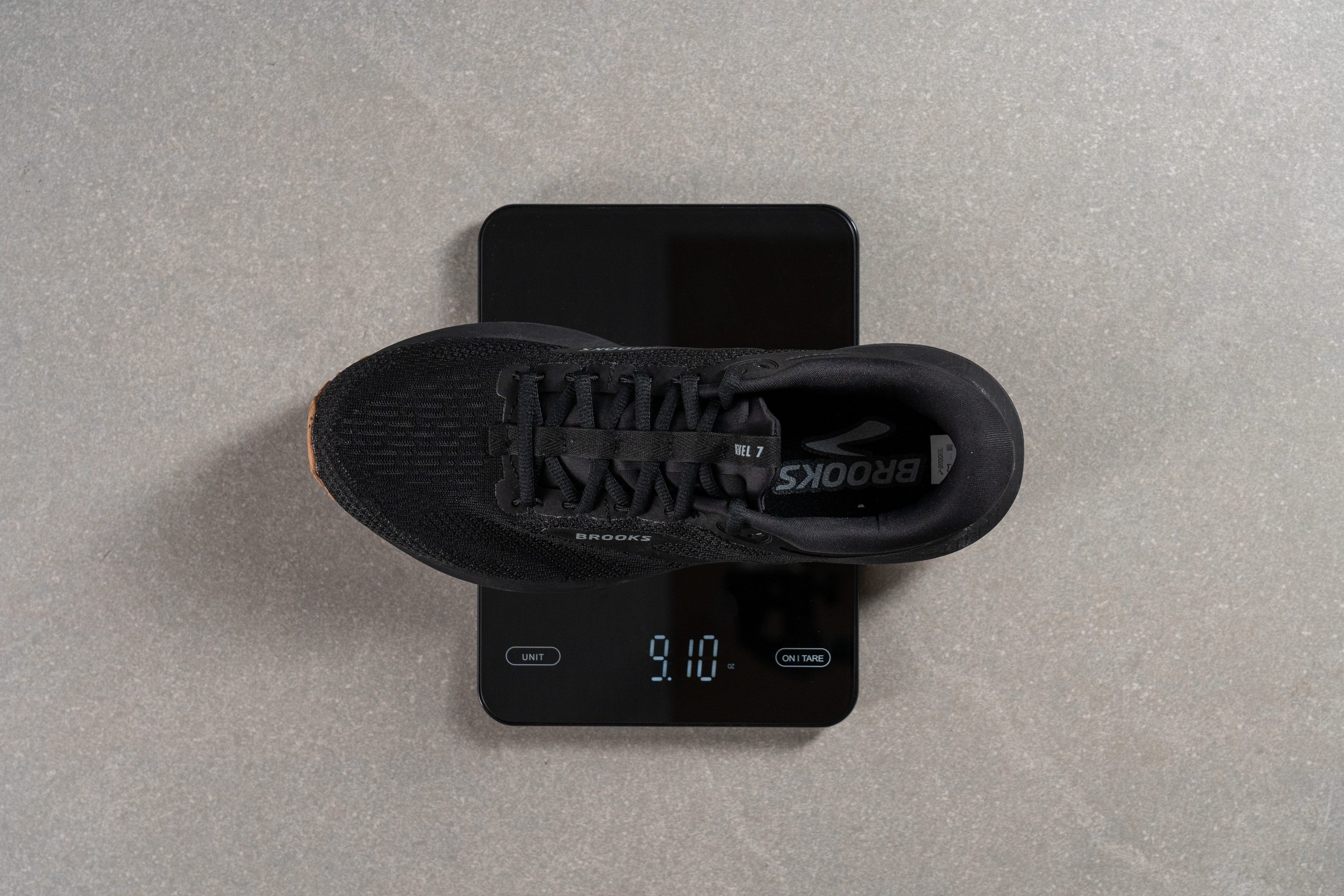
| Revel 7 | 9.1 oz (258g) |
| Average | 9.3 oz (264g) |
Breathability
Sure, a black colorway might not seem very breathable at first glance, but it was the only option available to us—we purchase all our shoes in the same US size 9 and with our own funds—and we were eager to deliver this review to you as quickly as possible.
In our smoke test, the Revel 7 simply excelled, earning a perfect score of 5/5 for performance. Despite the darker mesh, which might not be ideal in intense sunlight, we found that the shoe's ventilation is not compromised by color.
Further examination under our microscope revealed that the engineered mesh upper is designed with subtle ventilation holes.
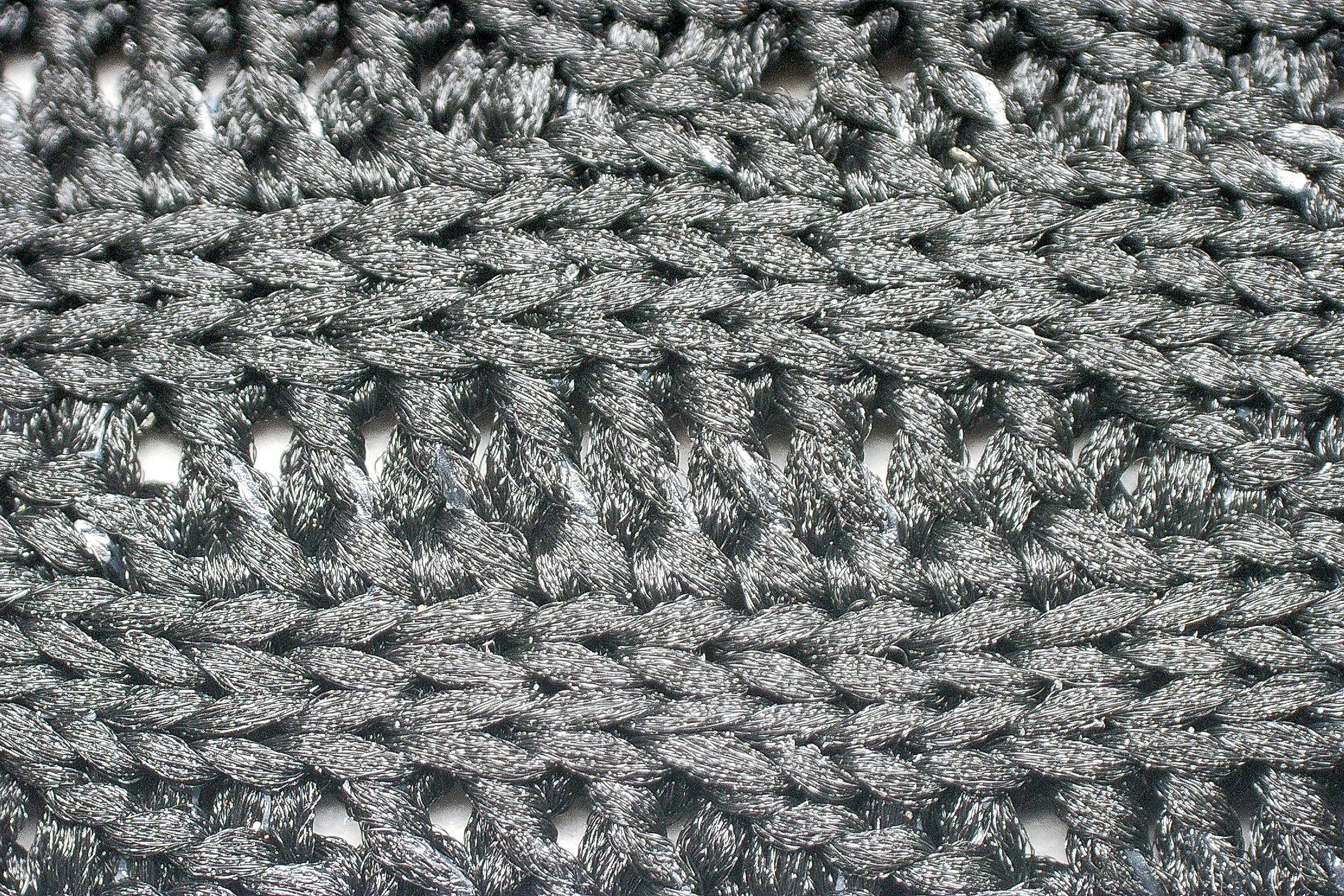
Overall, the upper of this $100 shoe is actually really good, comparable to what you might find in a more expensive daily trainer.
For those planning to run in extremely hot summers, we strongly recommend opting for a colorway other than black. And that's not going to be a problem—Brooks always offers the Revel in subdued and neutral styles, ensuring you won't encounter any flashy color combinations or bizarre Hello Kitty-themed designs.
| Revel 7 | 5 |
| Average | 3.7 |
Stability
Lateral stability test
The Revel 7 is a neutral daily trainer that lacks specific supportive features. However, we found it to be reasonably stable. For those requiring more support, we recommend a budget-friendly option like the ASICS GT 1000 13, which is designed specifically for stability.
Torsional rigidity
One key factor contributing to the Revel 7's stability is its high torsional rigidity. Scoring a 4/5, we believe it might be a bit excessive for neutral runners who prioritize ultimate comfort.
We hope to see this aspect slightly moderated in the next version of the Revel.
| Revel 7 | 4 |
| Average | 3.5 |
Heel counter stiffness
The heel counter also scored a 4/5 in our manual assessment. While this isn't inherently a bad thing—we experienced no issues during our runs—it does somewhat detract from comfort to enhance guidance. Nonetheless, we think that most neutral runners might prefer a less stiff heel area for better comfort.
| Revel 7 | 4 |
| Average | 2.9 |
Midsole width - forefoot
Turning our attention to the midsole's dimensions, we measured the forefoot at just 111.3 mm, slightly narrower than the average widths we typically encounter in our lab tests.
This clear indication suggests that runners who do not have a neutral running style should likely steer clear of the Revel.
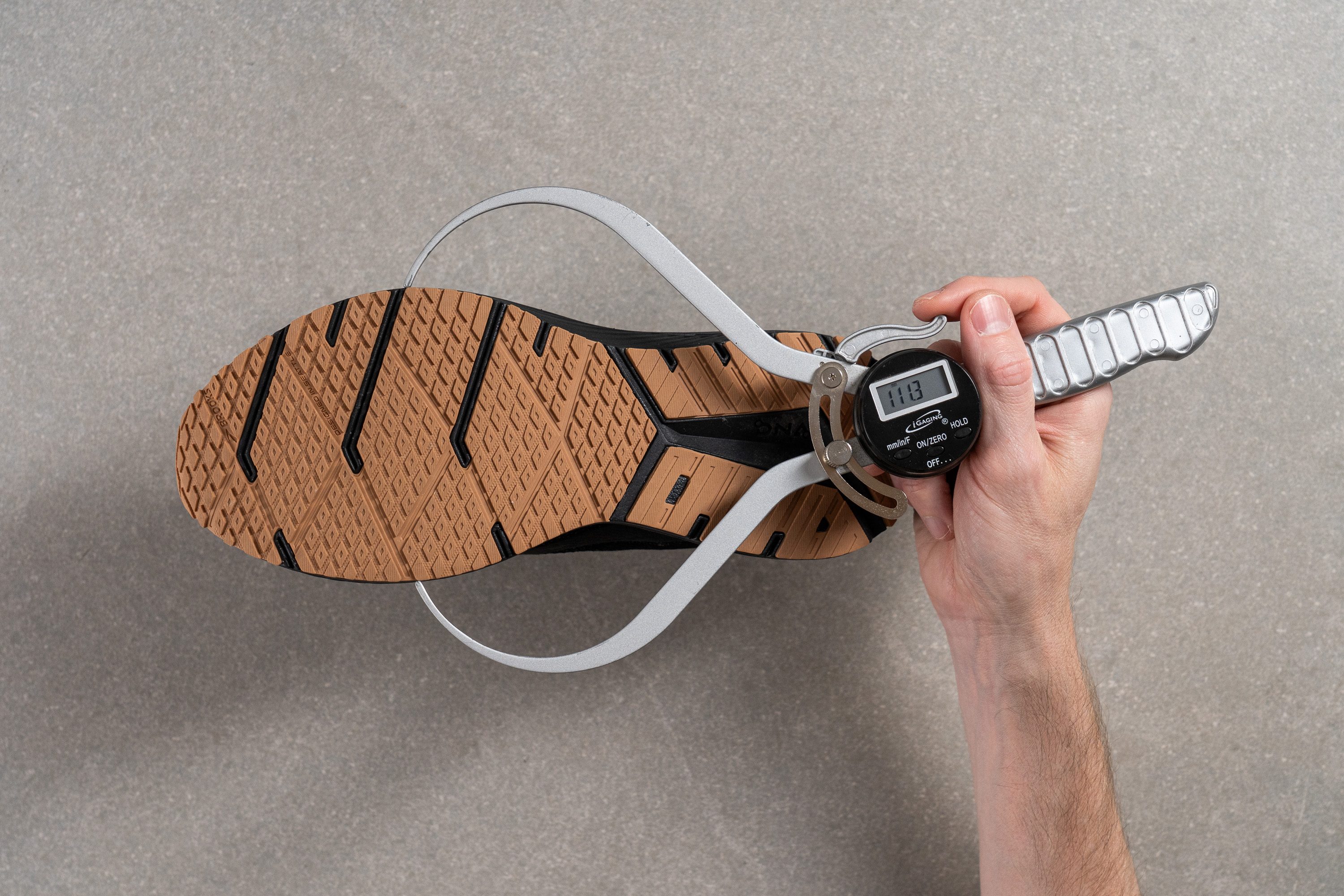
| Revel 7 | 111.3 mm |
| Average | 114.4 mm |
Midsole width - heel
The heel is just average at 89.0 mm, which is beneficial for neutral runners.
Why? Because if you don’t require extra support, a streamlined shoe can offer more agility and lightness. For those who do need support, as previously mentioned, exploring a stability shoe would be a better choice.
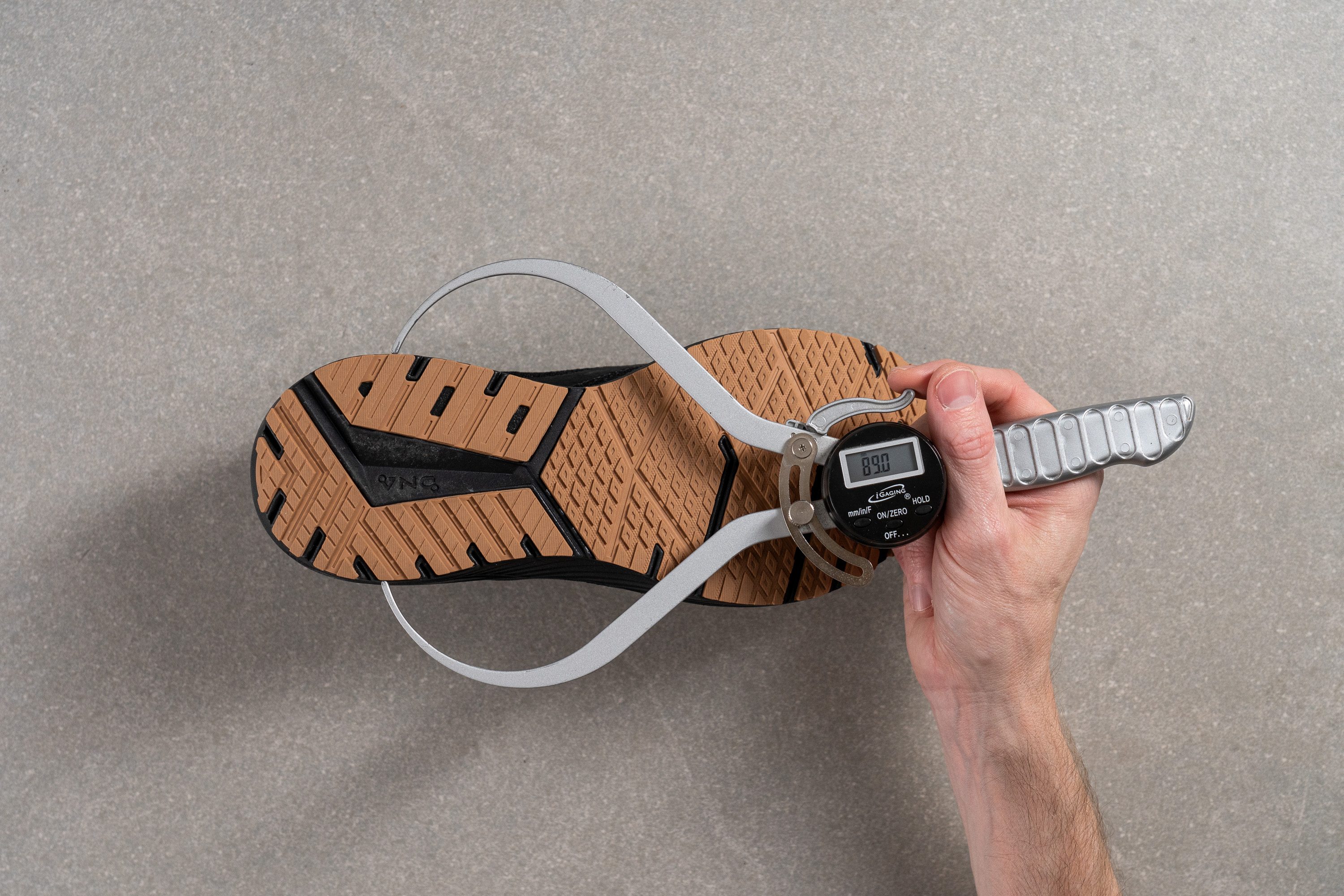
| Revel 7 | 89.0 mm |
| Average | 90.6 mm |
Durability
Toebox durability
We've always praised the Revel series for being dependable and durable, and now it's time to discover if the seventh edition lives up to the hype, beginning with the toebox.
Indeed, scoring an impressive 4/5 in our first test with our Dremel tool, the Revel 7 is off to a fantastic start. From our perspective, it seems that this model is ready to maintain its momentum in the lab!
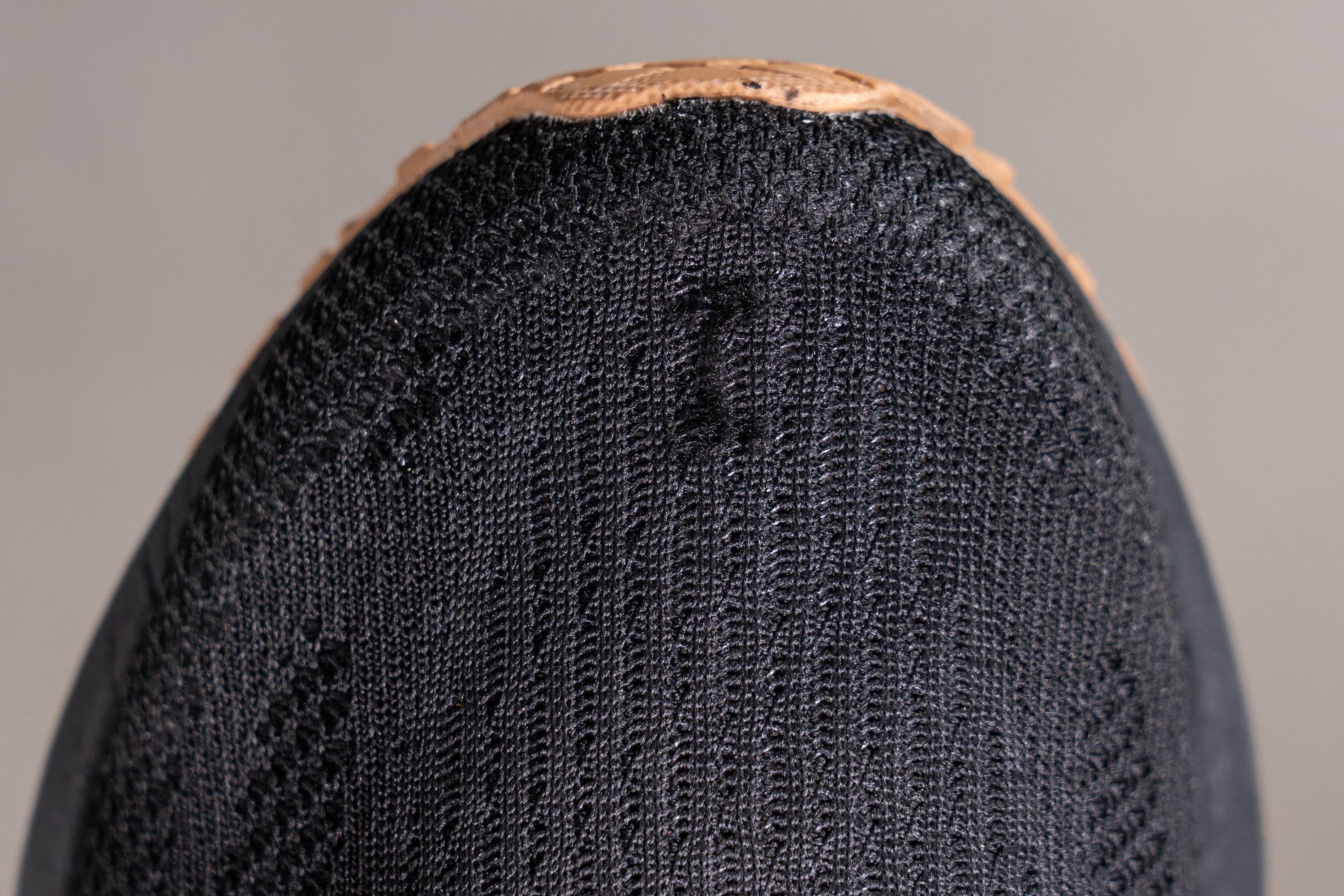
| Revel 7 | 4 |
| Average | 2.6 |
Heel padding durability
However, the heel padding was slightly disappointing, though only to a minor extent.
After we tested the sandpaper tip with the same specifications as before, we settled on a 3/5 rating. This score isn't bad by any means, but it could be better!
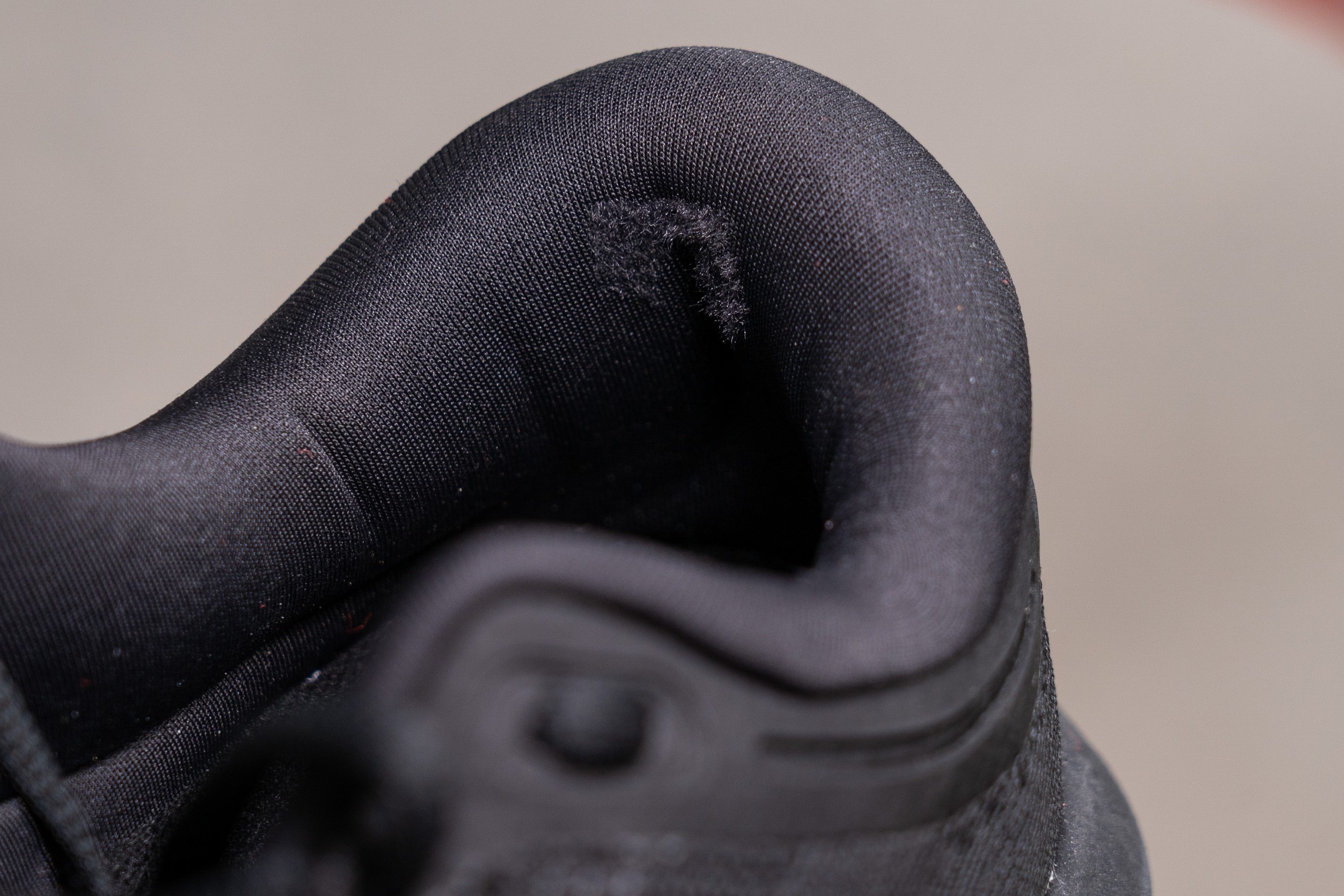
| Revel 7 | 3 |
| Average | 3.4 |
Outsole durability
During our rigorous final Dremel test, what we found was quite impressive—a minimal indentation of just 0.7 mm.
This result strongly suggests that the outsole will hold up well against wear and tear, making it an excellent choice for those who sometimes run on gravel paths or dirt roads.
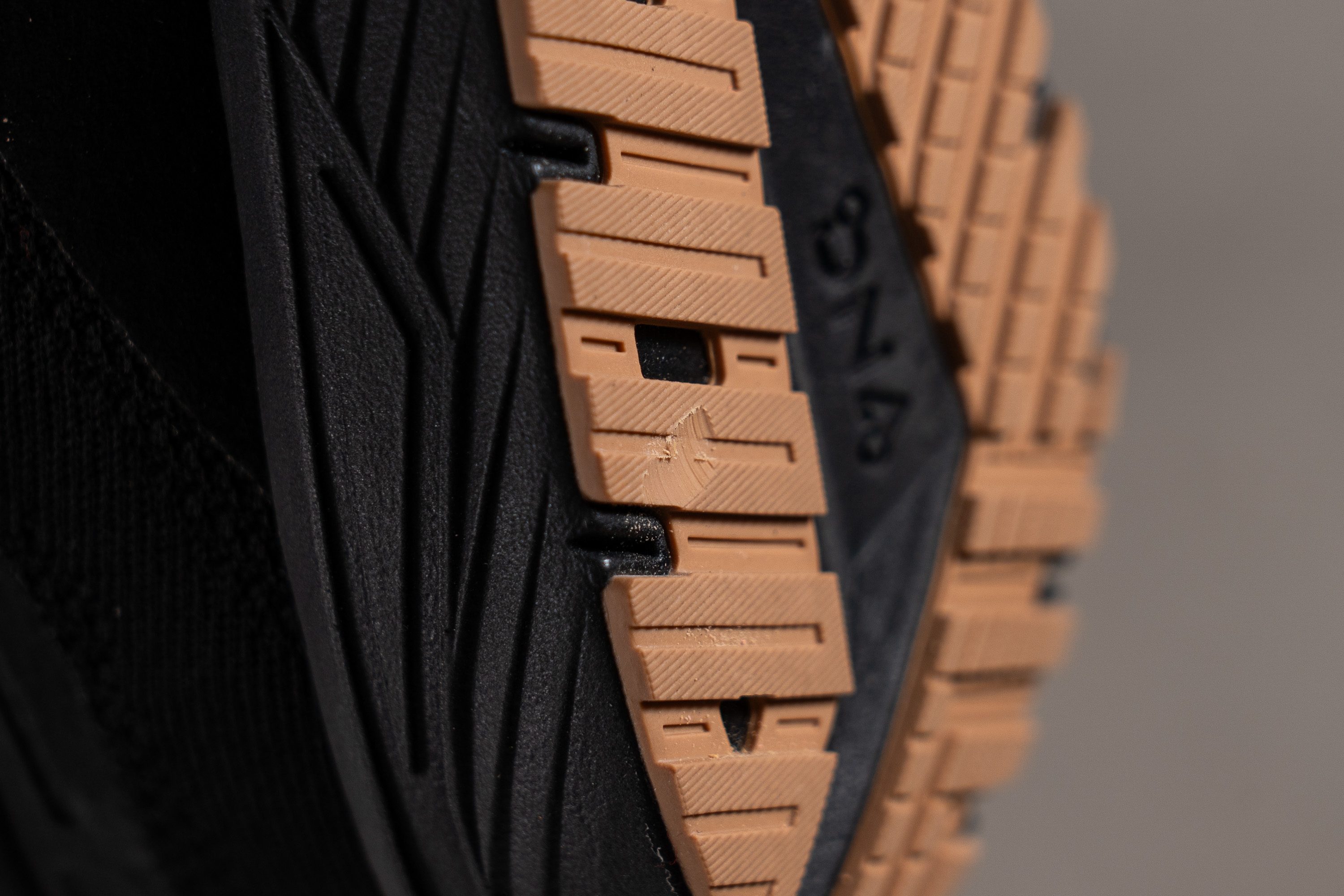
| Revel 7 | 0.7 mm |
| Average | 1.1 mm |
Outsole thickness
To ensure durability, Brooks generously added a robust 3.8 mm of rubber beneath the midsole for maximum protection. Clearly, they aim for you to get bored of the Revel 7 long before it shows any signs of major wear.
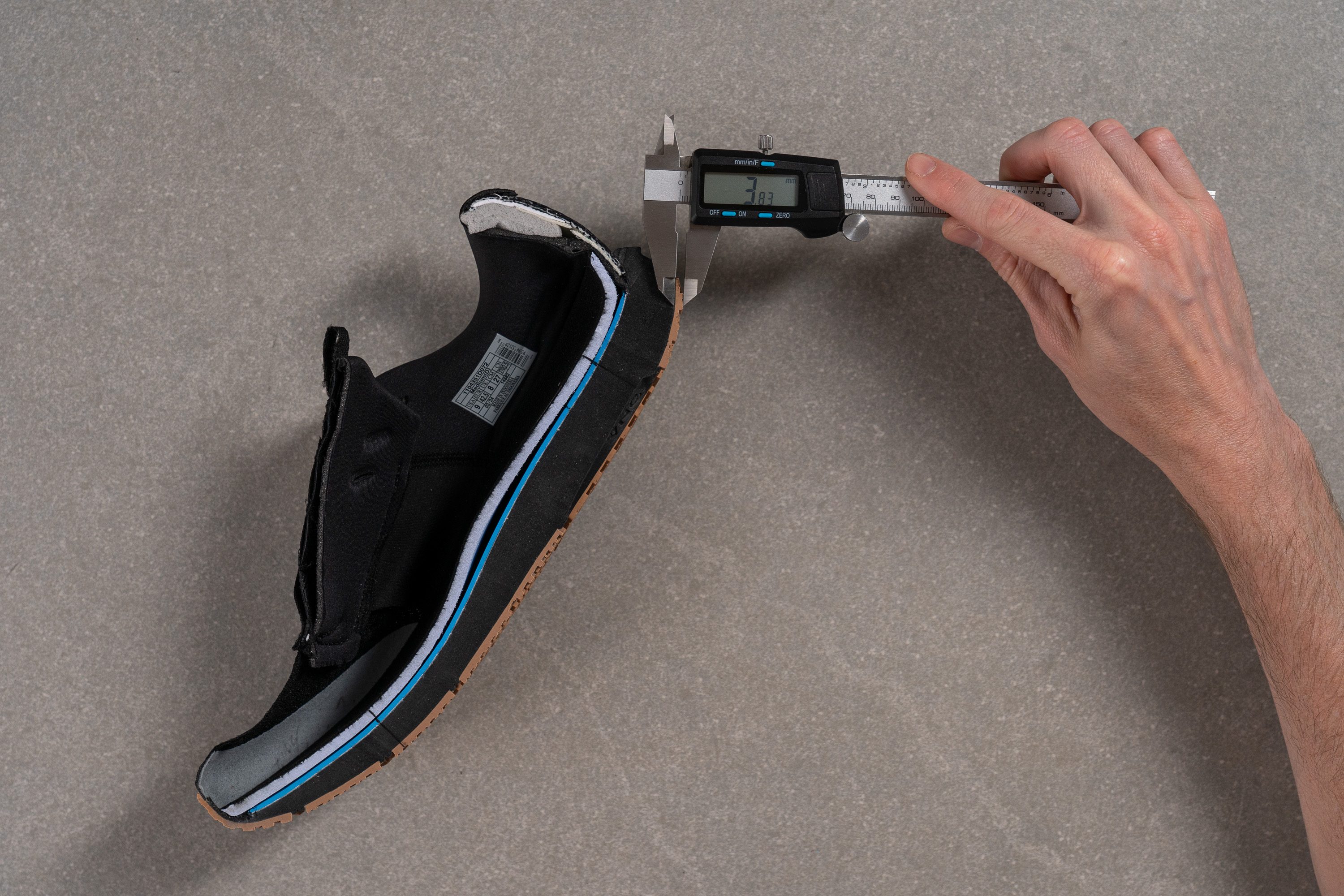
| Revel 7 | 3.8 mm |
| Average | 3.2 mm |
Misc
Insole thickness
We conducted measurements on the insole with our caliper and found its thickness to be 4.9 mm. This aligns pretty well with the average thickness typically found in most running shoes.
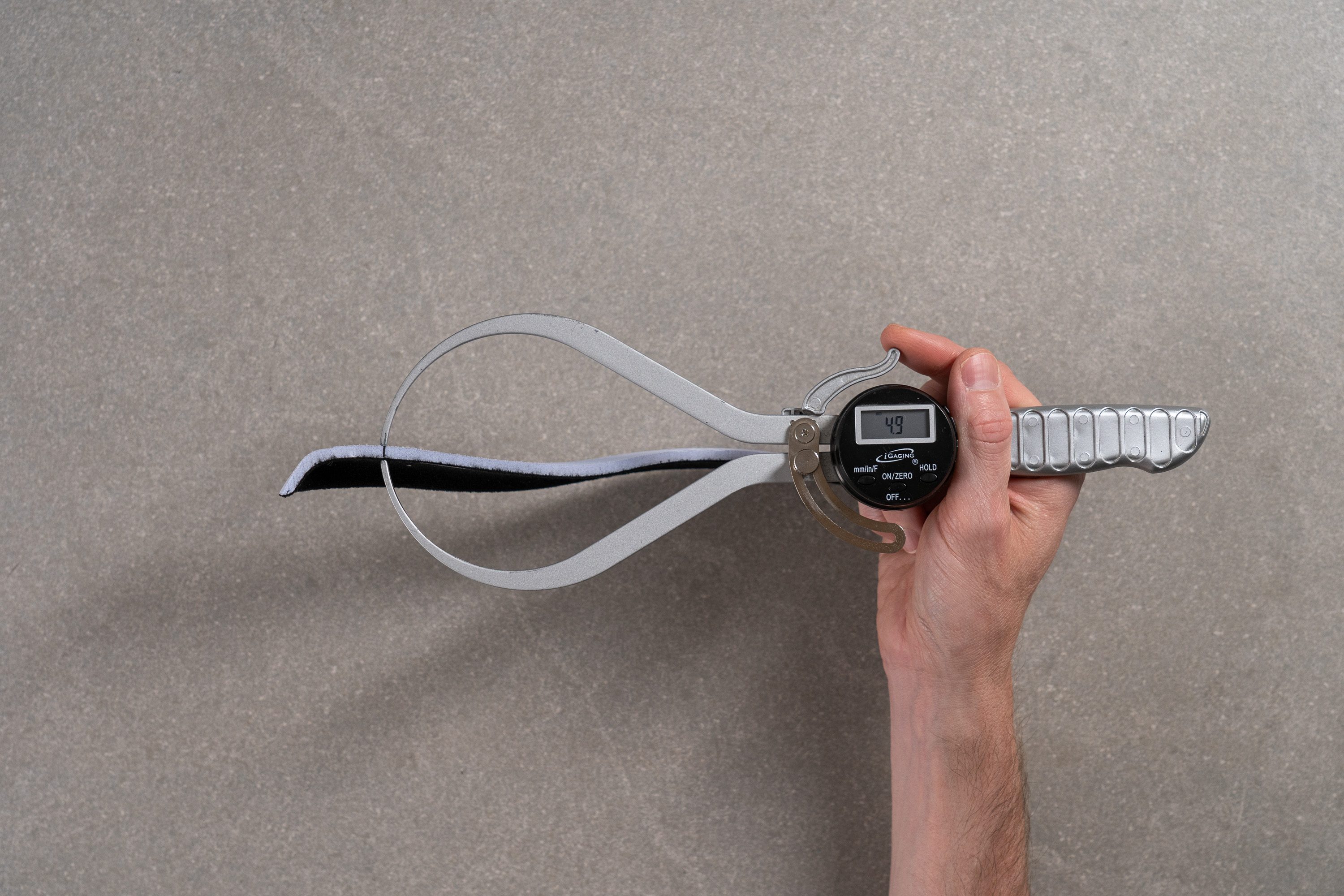
| Revel 7 | 4.9 mm |
| Average | 4.5 mm |
Removable insole
We discovered that swapping the standard insole for an aftermarket one poses no problems, as there's ample room inside the shoe, and the footbed isn't fixed to the midsole.
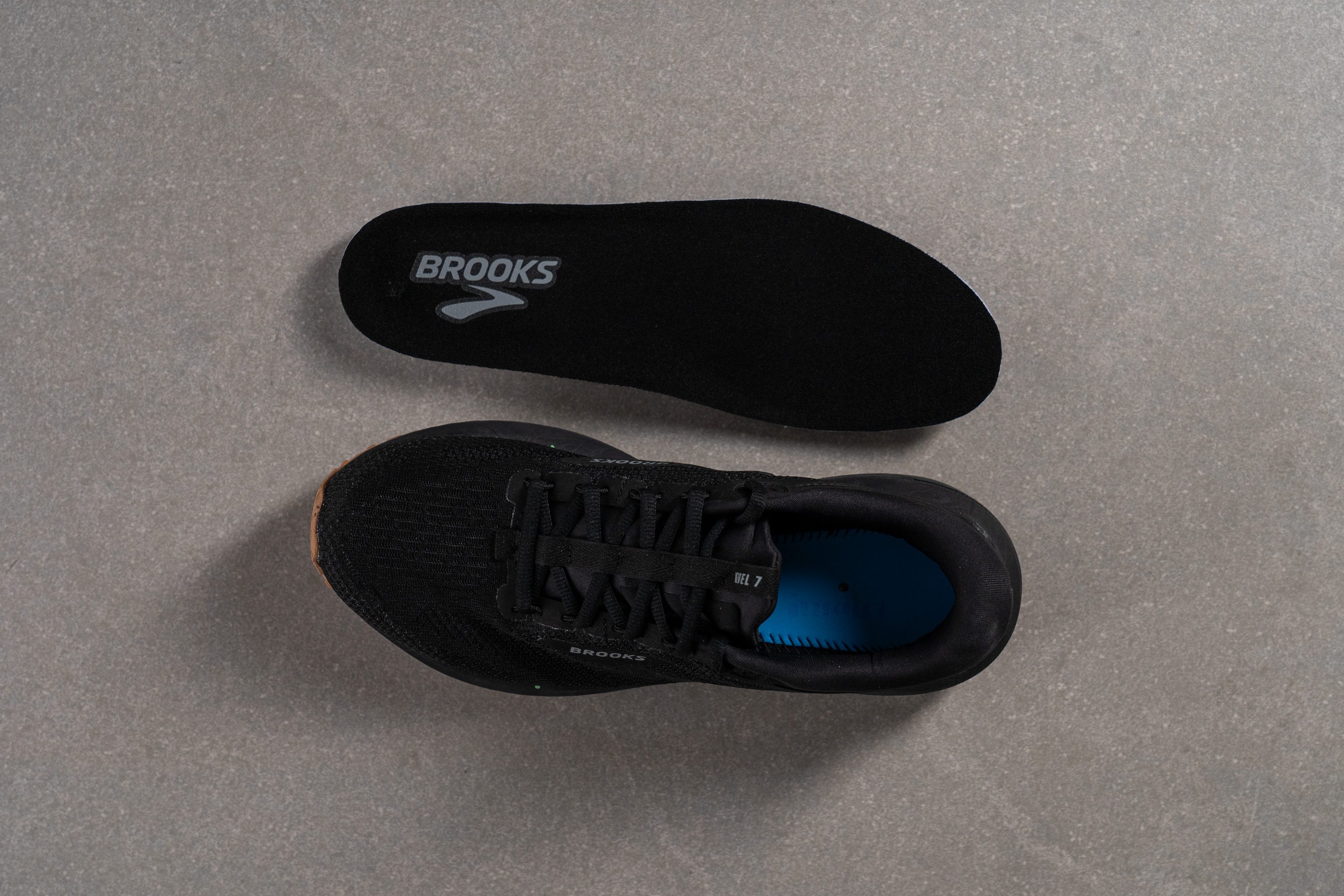
| Revel 7 | Yes |
Midsole softness in cold (%)
To assess how the BioMoGo DNA foam performs in cold conditions, we placed it in the freezer for 20 minutes and then conducted another reading with our durometer.
The results were impressive for an EVA foam, and satisfactory when compared to the average, as it only became 26.3% firmer.
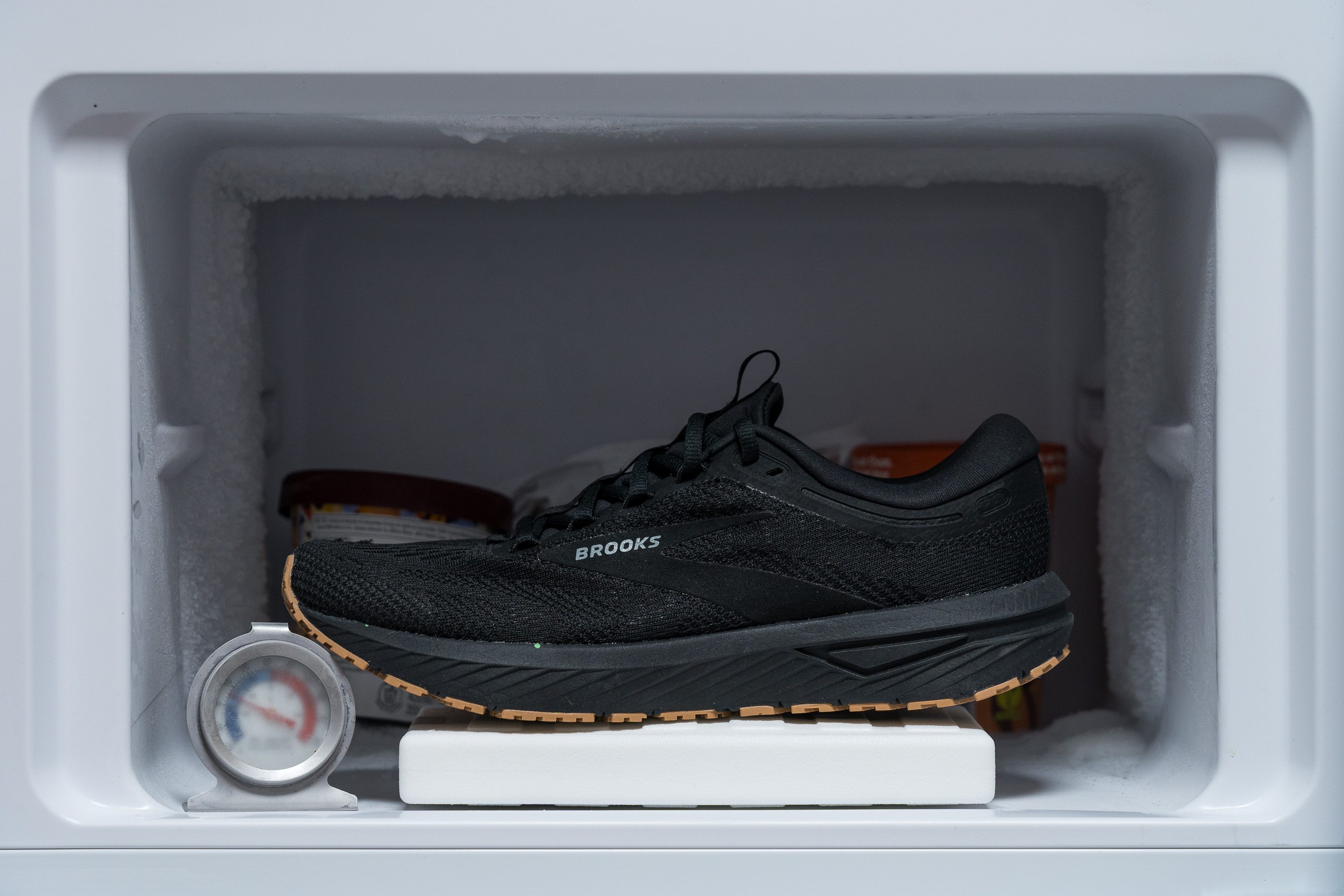
| Revel 7 | 26% |
| Average | 24% |
Reflective elements
Unfortunately, we discovered that the Revel 7 lacks any reflective elements whatsoever. Even worse, in the black colorway we purchased, it's essentially the opposite of a safe shoe in low-light conditions!
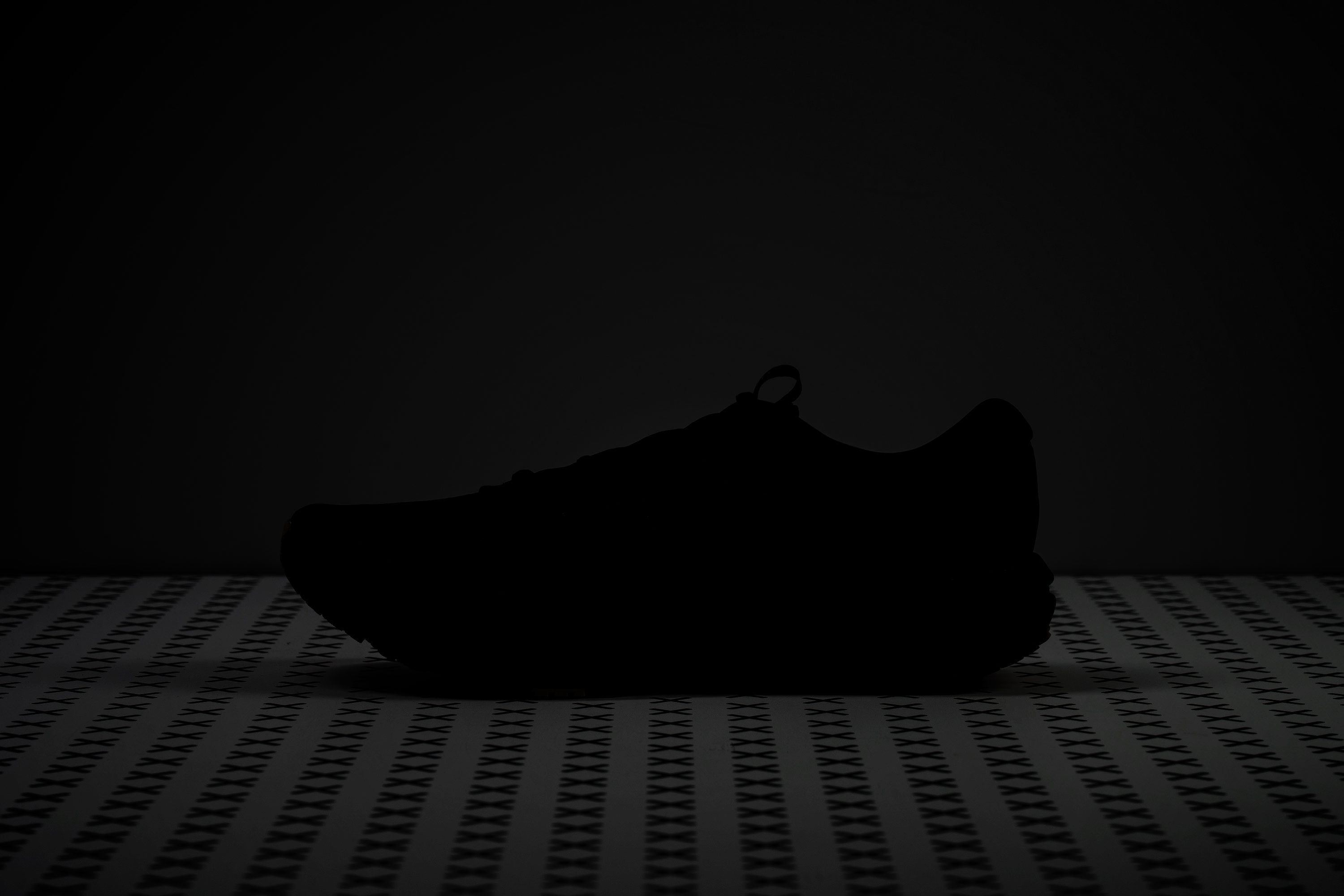
| Revel 7 | No |
Tongue padding
While many brands opt for excessive padding in the tongue to provide a luxurious feel, we find this approach often compromises the weight to comfort ratio in daily trainers.
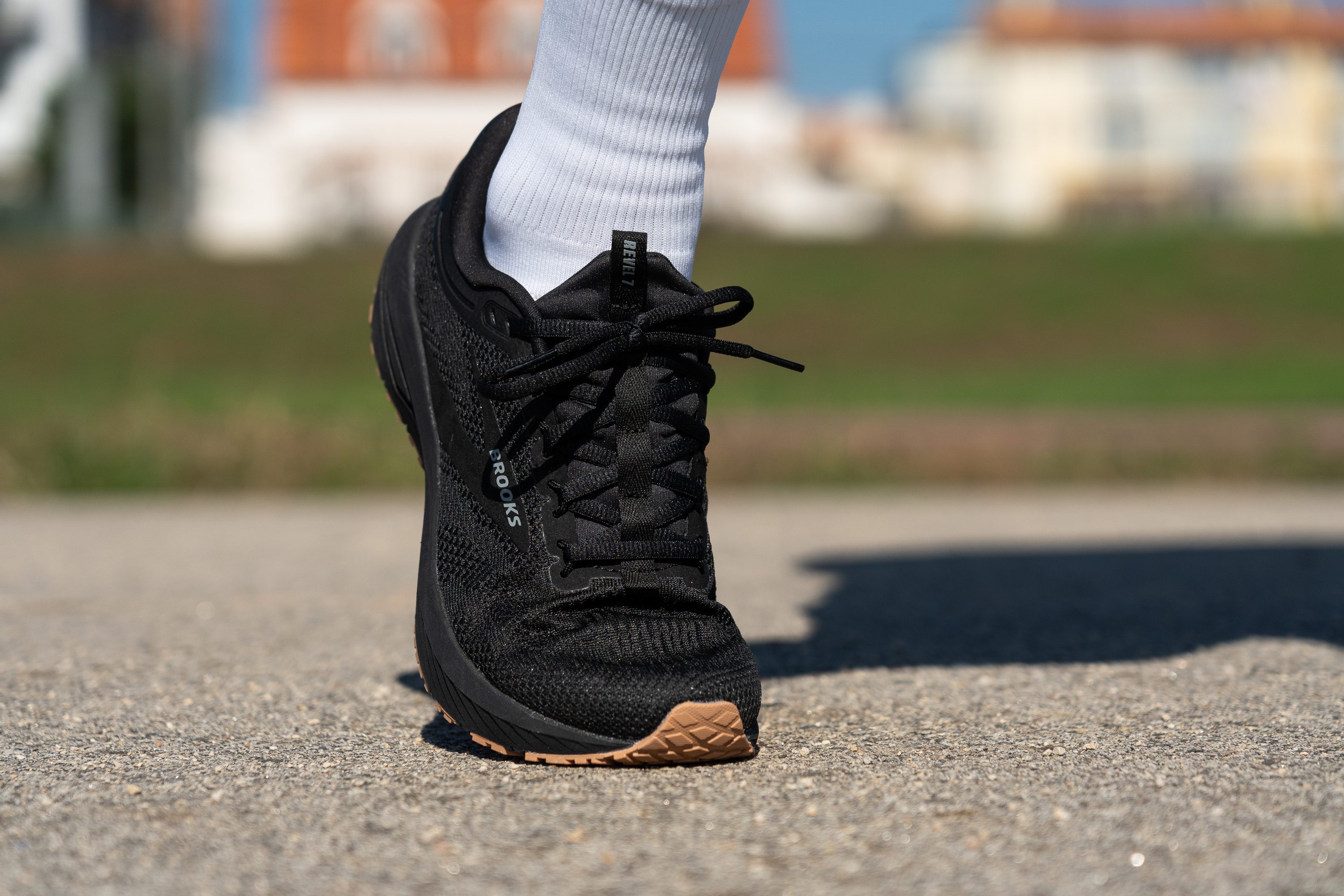
From our testing, we've observed that beyond 4 or 5 mm, the benefits of increased padding are marginal. That's why we appreciate the Revel 7's design choice: a 4.5-mm tongue that effectively fulfills its purpose without adding unnecessary weight.
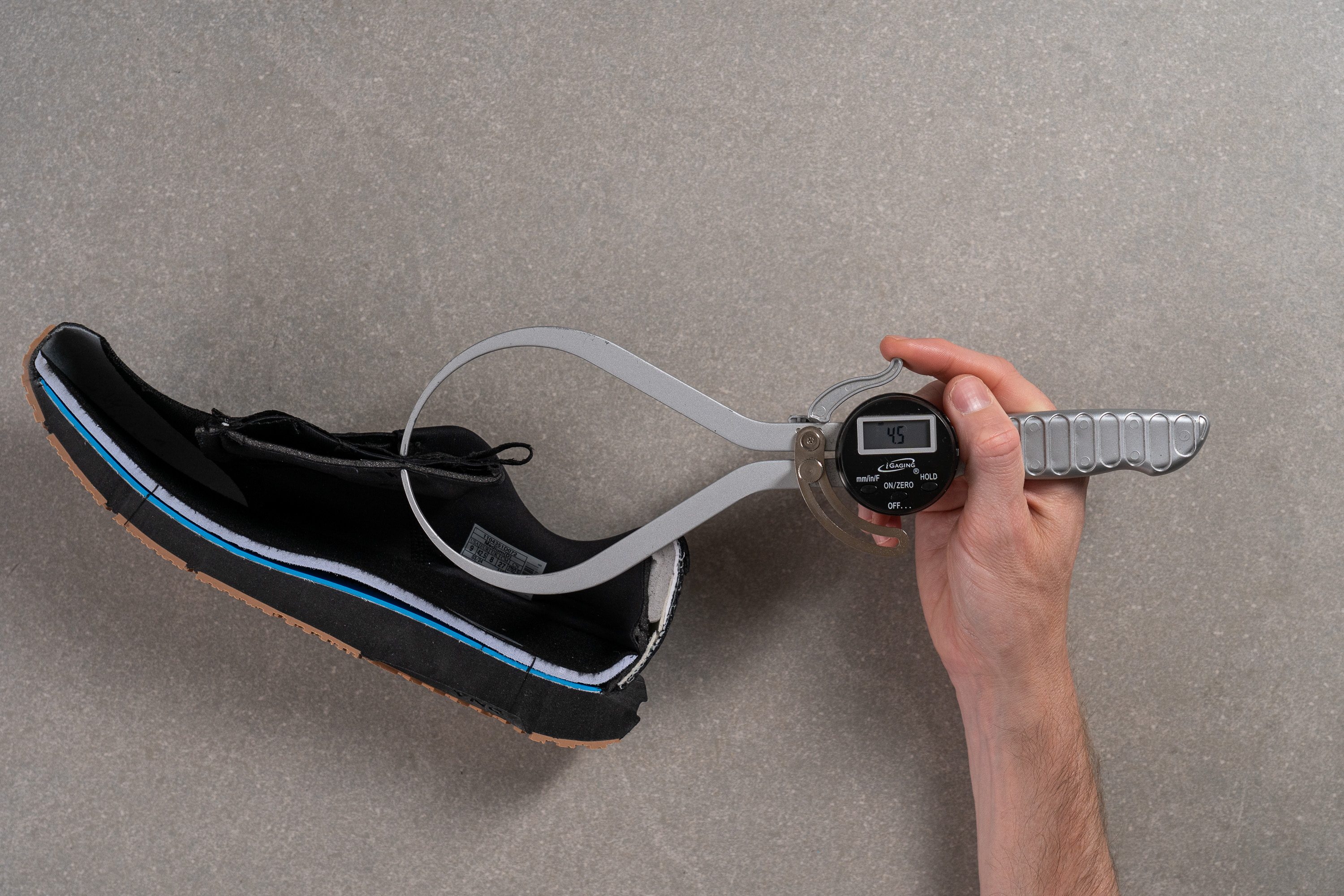
| Revel 7 | 4.5 mm |
| Average | 5.7 mm |
Tongue: gusset type
Finding a semi-gusseted tongue in a $100 shoe is absolutely astonishing for us—it's a feature that even more expensive shoes in the $130-$140 range often lack.
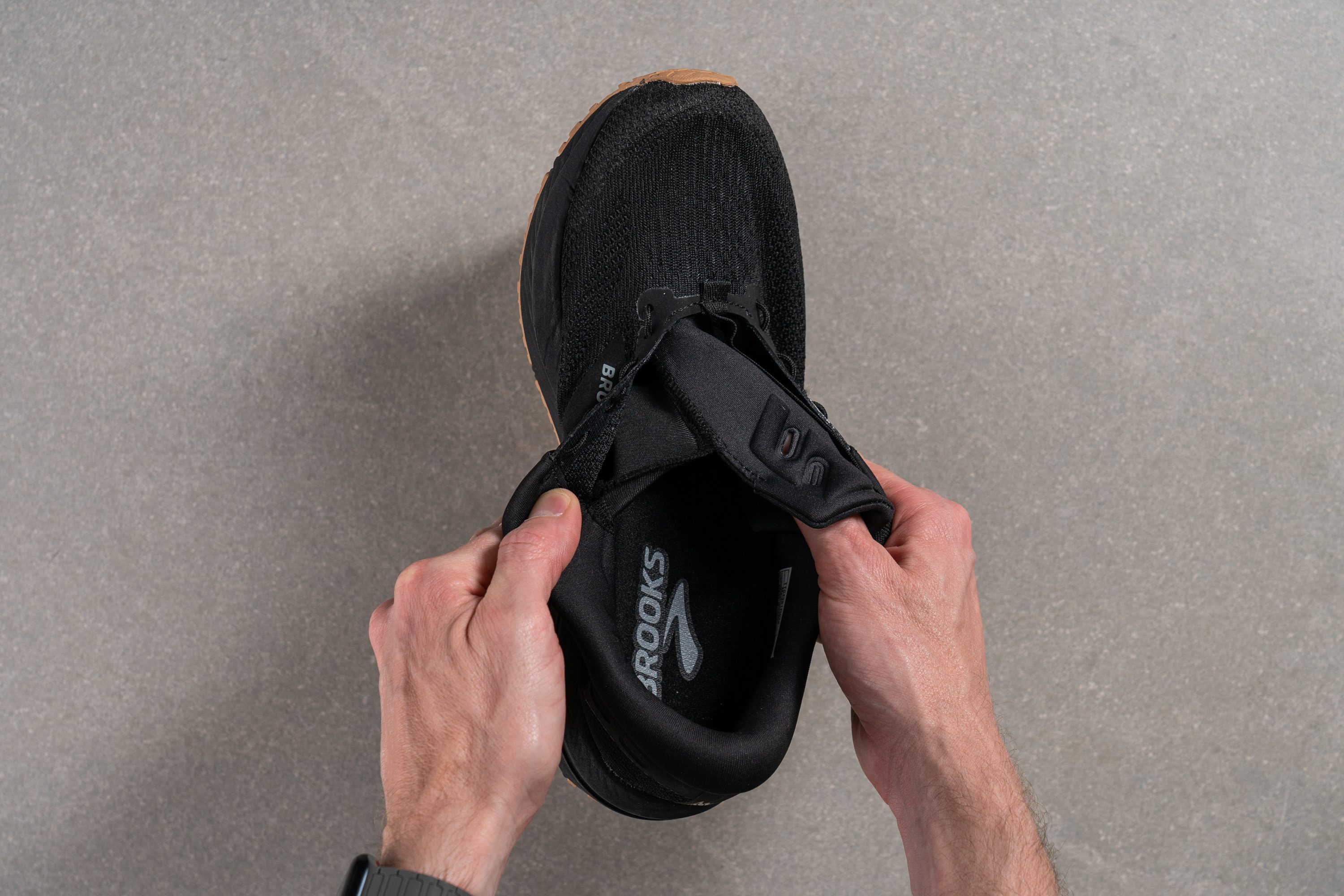
| Revel 7 | Both sides (semi) |
Heel tab
We think that Brooks maybe chose to exclude a heel tab on one of their more budget-friendly models—adding one would raise production costs. Maintaining the Revel’s price at just $100 is crucial, no matter what!
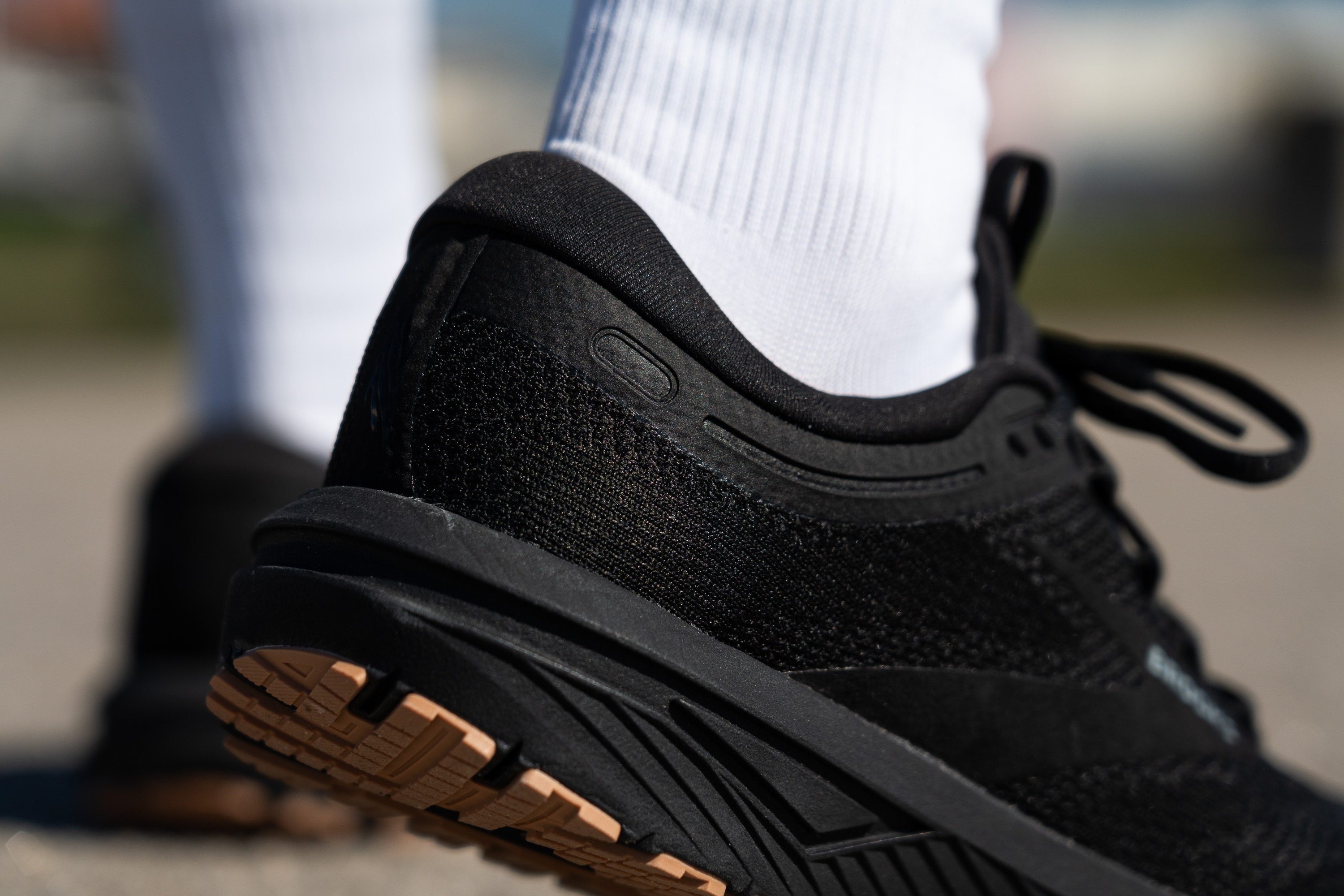
| Revel 7 | None |

